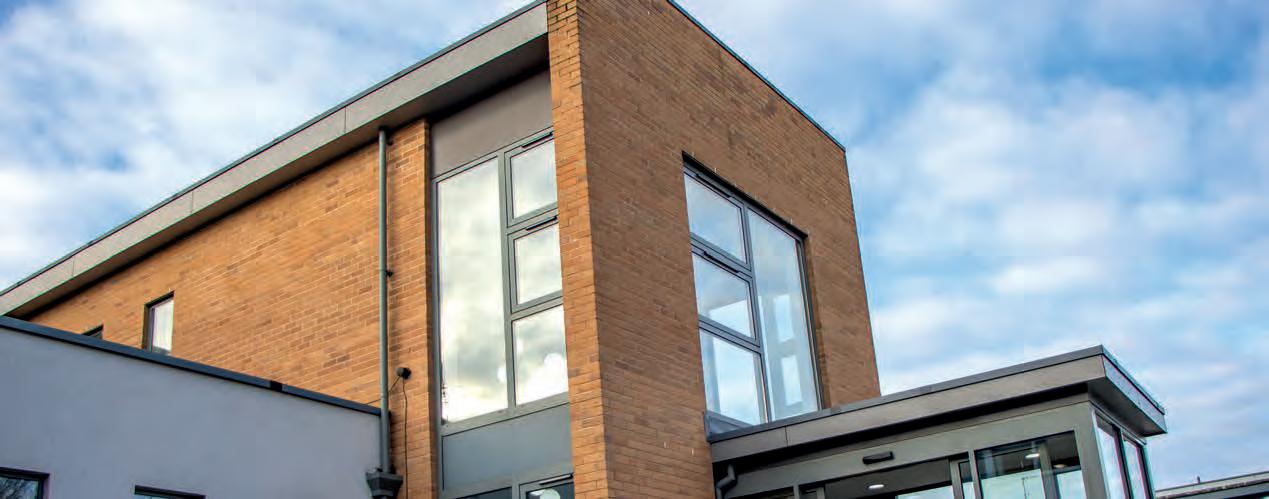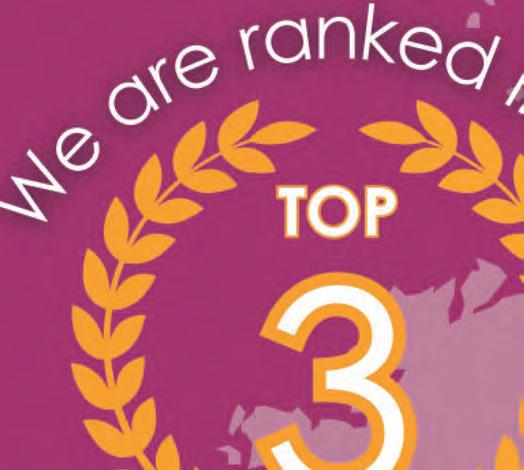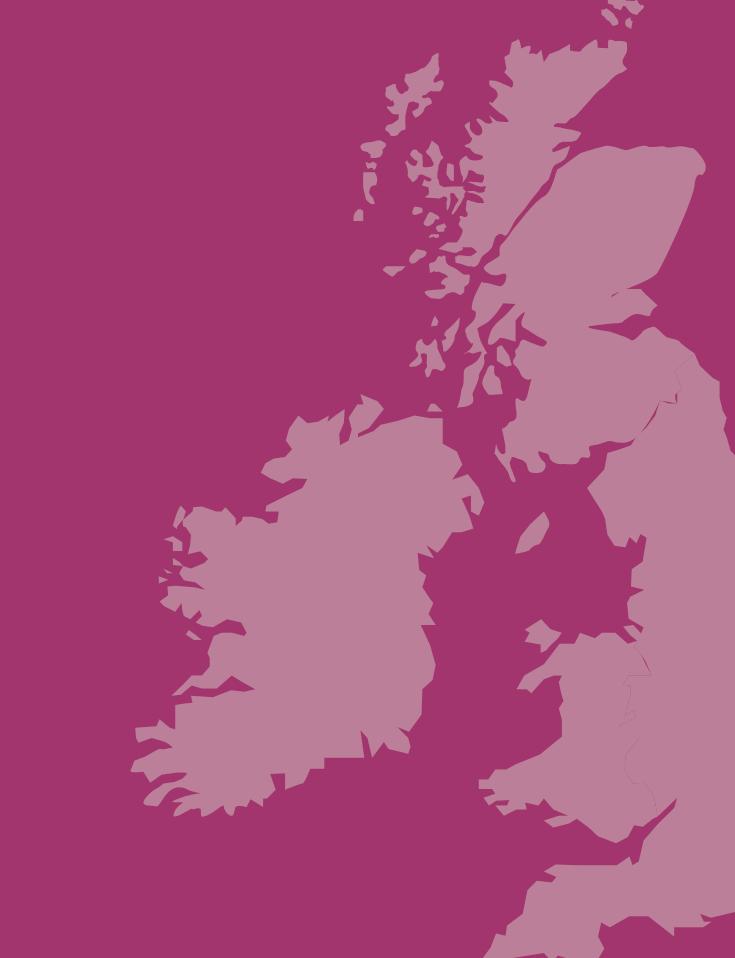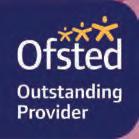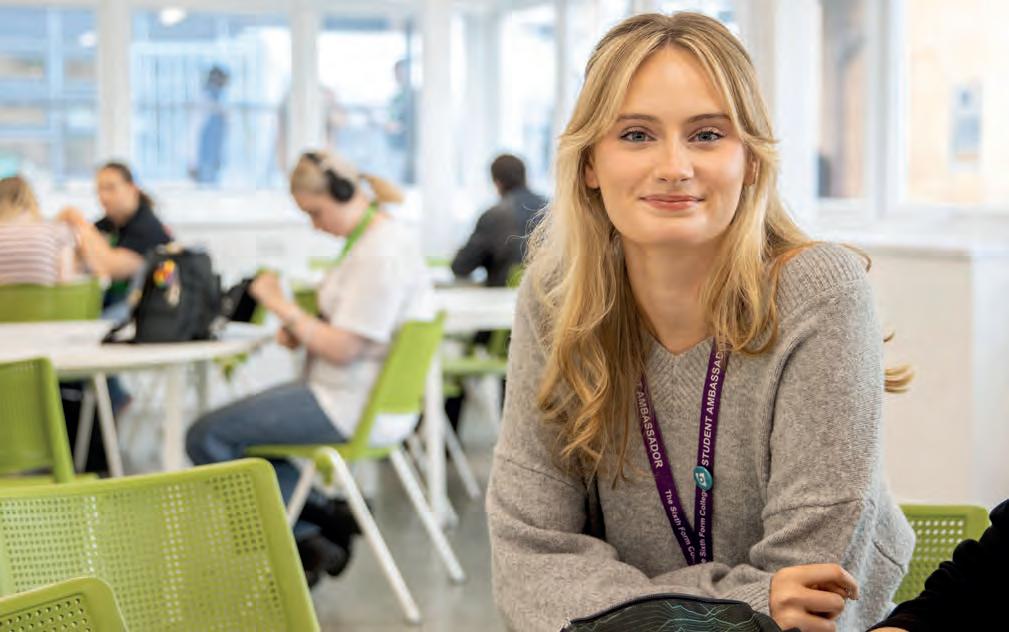
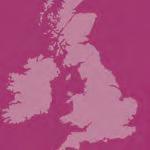


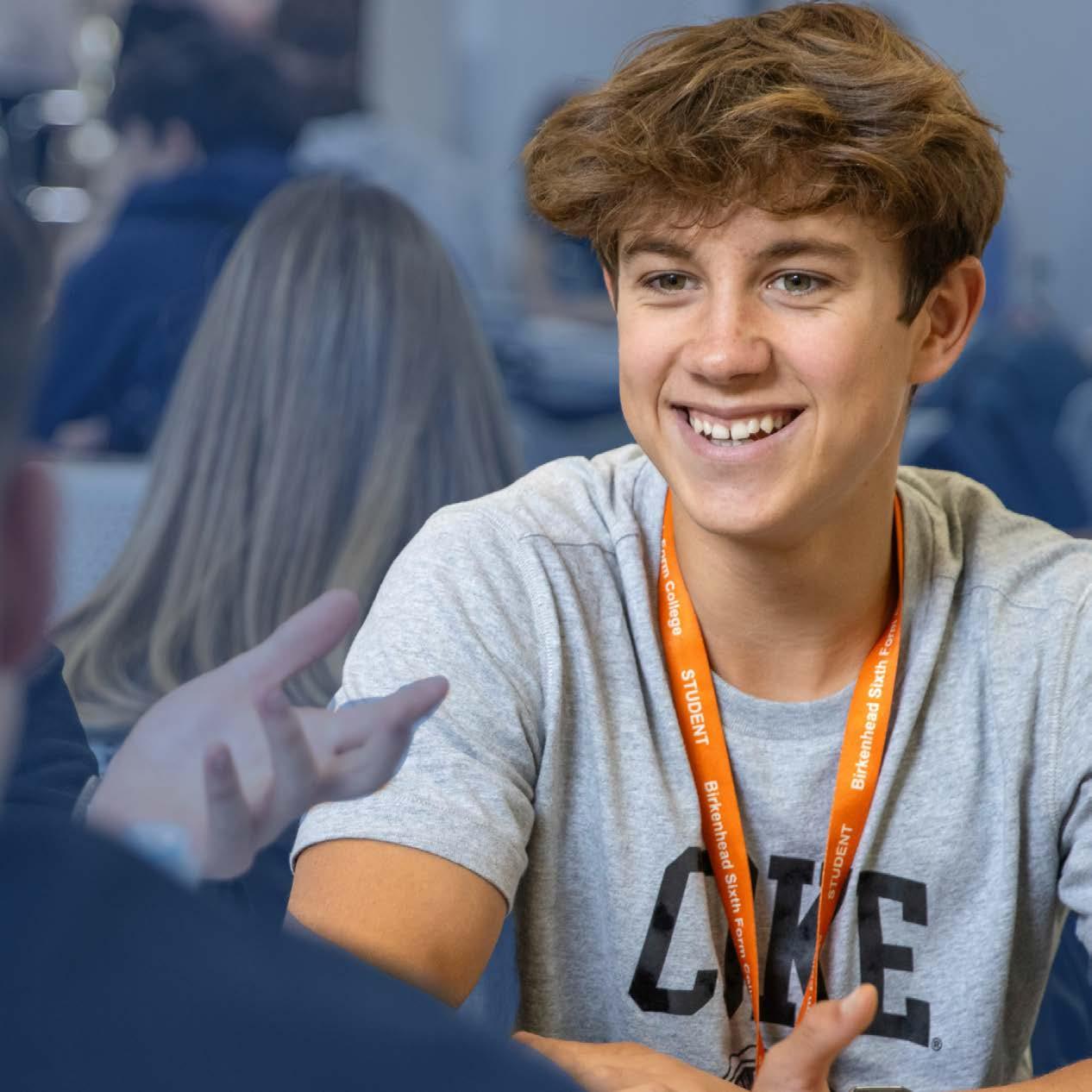






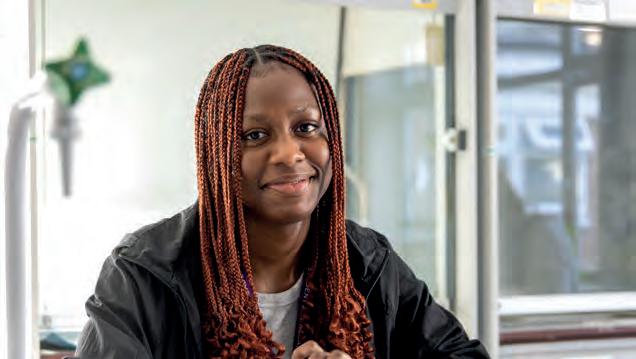
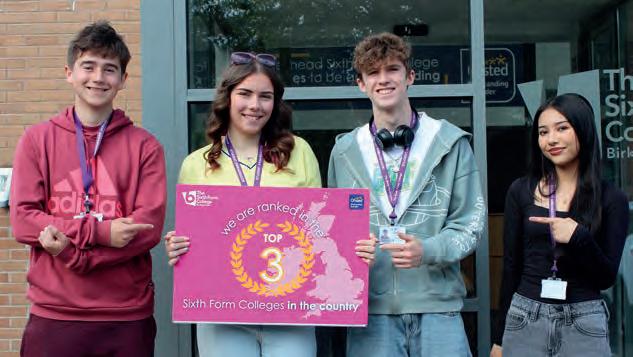
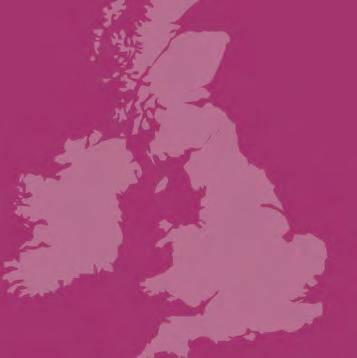
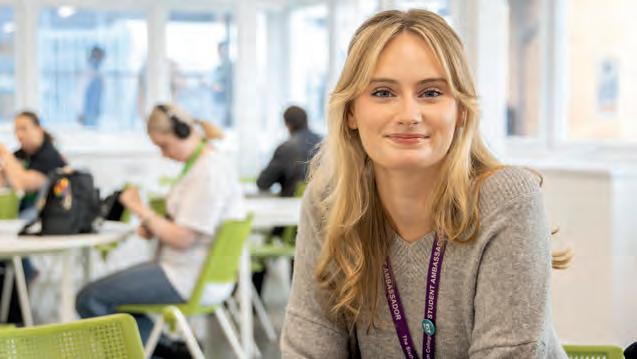
















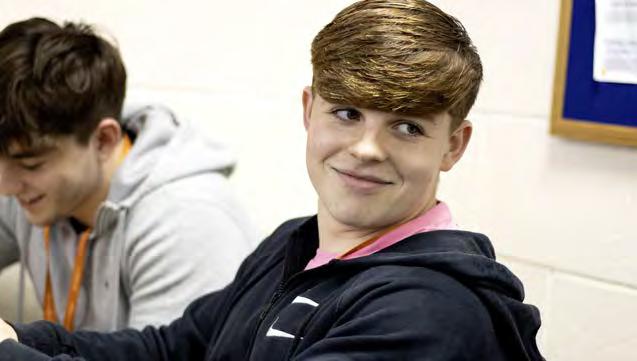
We are a sector leader in achieving

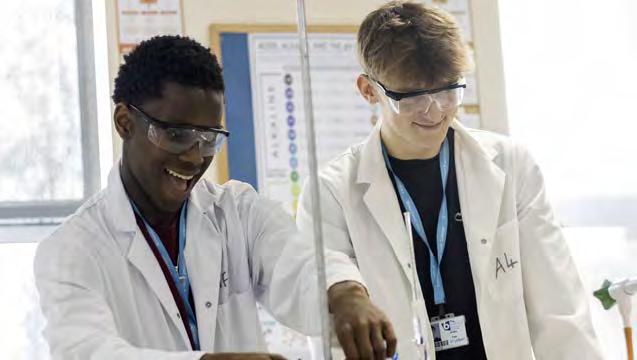
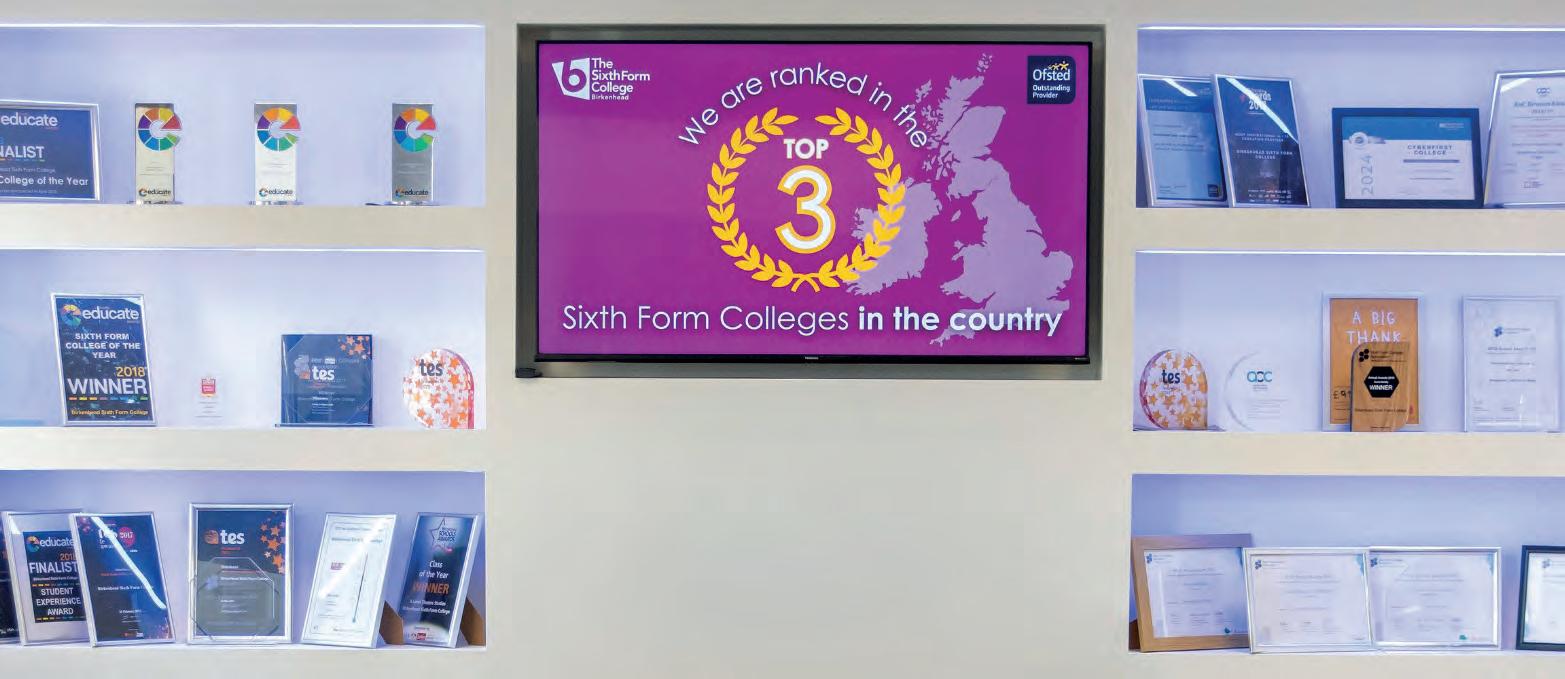











Our values run through everything we do every day.
Both staff and students exemplify the four values and they influence each and every interaction that we have.
We are POSITIVE
We are positive about what we can do and what others can do
We are AMBITIOUS
We work to release the innate human drive for success
We are RESILIENT
We will not give up when faced with difficulties
We are THOUGHTFUL
We treat everyone with respect and consideration
You’re only around students your own age, rather than being around Year 7 and upwards.
Although free periods are for independent study, you can leave the College campus in your free periods.
You can choose any combination of subjects without being limited by option blocks.
You can wear your own choice of clothes - there is no uniform or the need to wear a suit.
Unlike a school sixth form, everyone is new when they start, so you are not trying to fit into established friendship groups.
There are opportunities outside the classroom for students to grow from clubs and activities to bespoke programmes such as the High Performers Programme. See page 62 for more details.
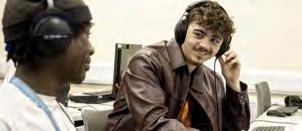
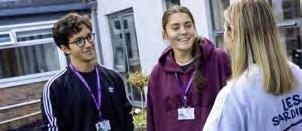
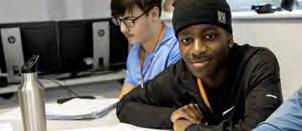
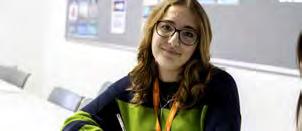
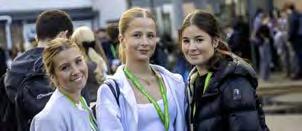
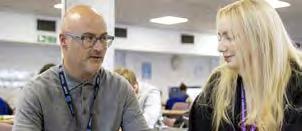
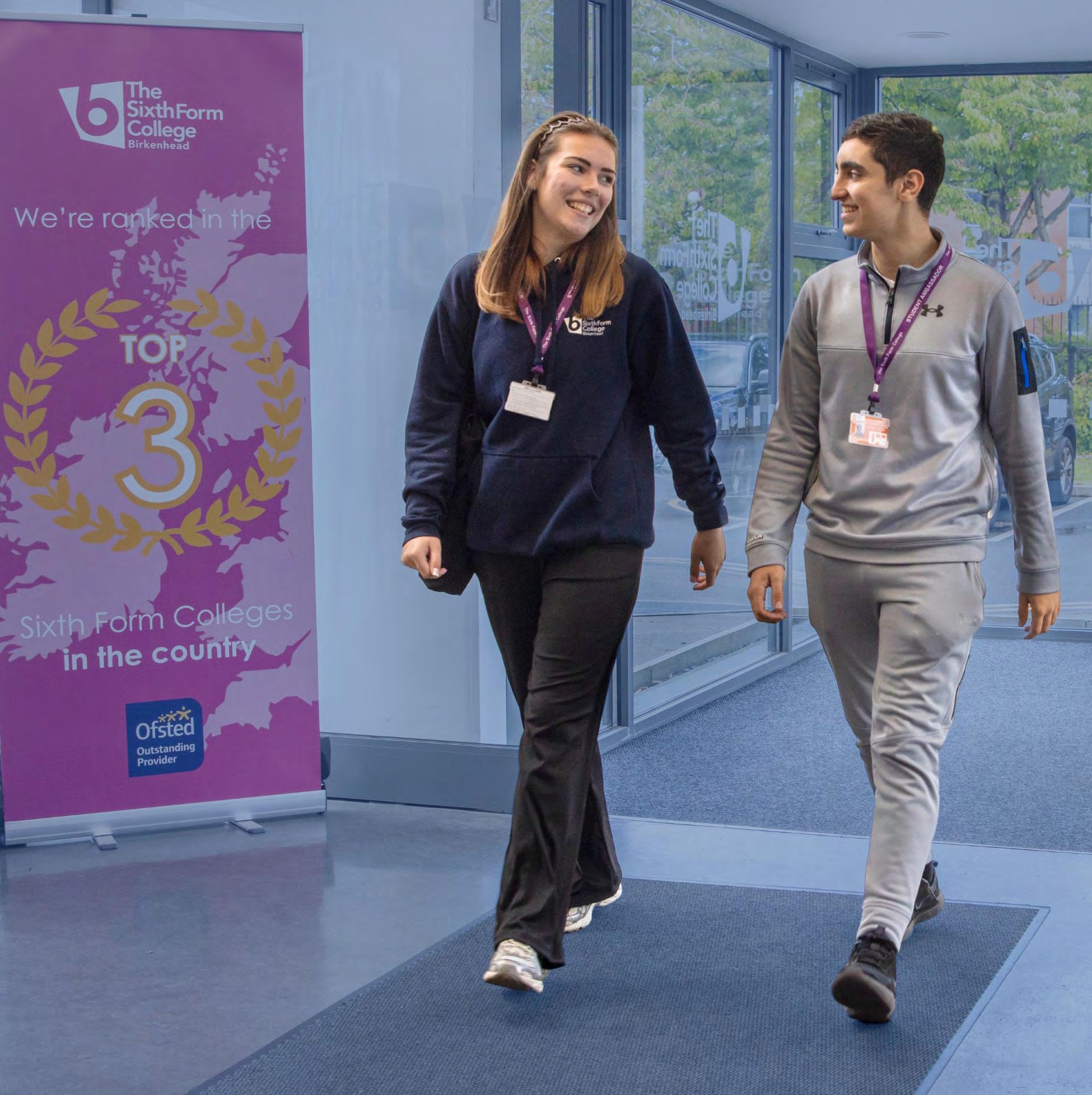
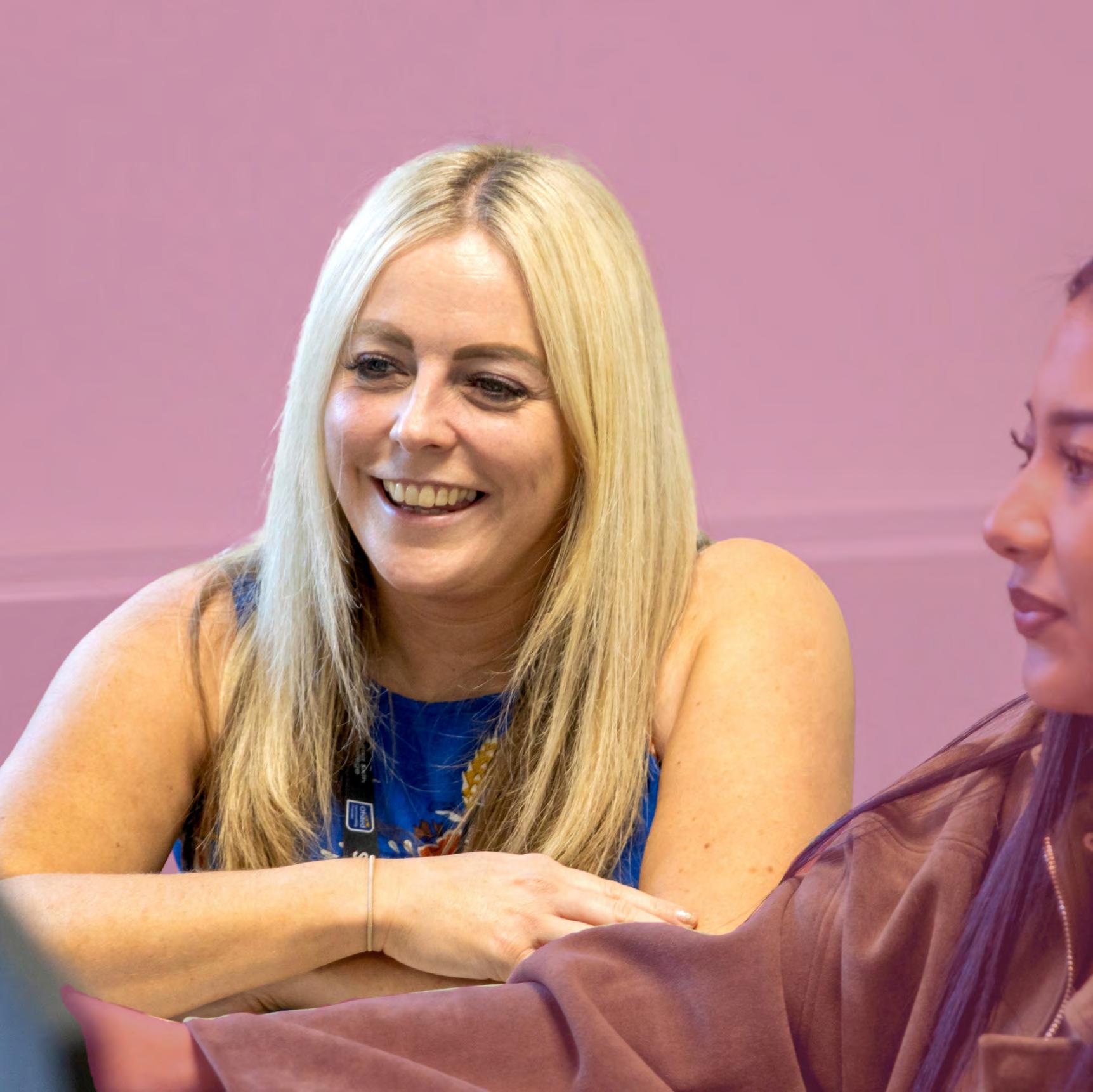
Our teachers are specialists in A Levels and BTECs.
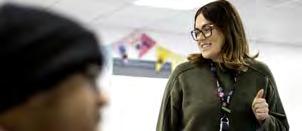
They have expert knowledge of the course they teach you.
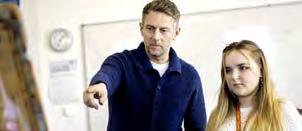
This is a place of mutual respect - first names for everyone.
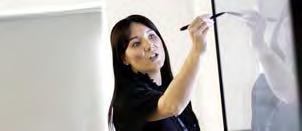
They are friendly and welcoming, and will treat you with respect from day one.
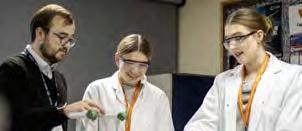
They will support you to help you realise your full potential.
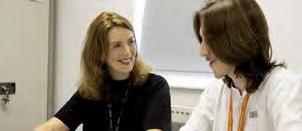
More face-to-face teaching than other sixth formsequivalent to 13 extra weeks of teaching across sixth form.
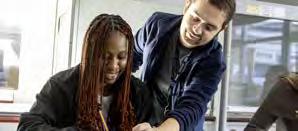

Our students’ results each and every year are further proof of the success of our approach to education, and we are extremely proud of what they achieve.
Students make better progress with us than anywhere else, no matter their starting point.

2025 was a record breaking year for A Level high grades (A* - B.)
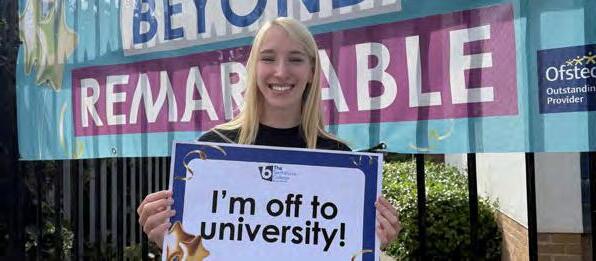
Our ‘grammar school’ cohort have the unrivalled high grade rate of 79%.

The results that you get with us open doors to the best universities in the country, and the right path for you as an individual.
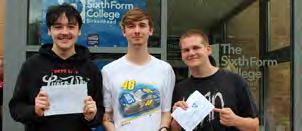
Russell Group universities are the most discerning universities in the country. Record numbers of our students progressed to Russell Group universities in 2025.

We can also help you gain apprenticeships with leading employers.


One of the things that sets us apart from school sixth forms is our team of experienced personal tutors.
Each student is allocated a personal tutor who will stay with you throughout your time at College. Their purpose is to support the personal growth and academic development of each and every student.
Tutors will help you settle in when you first start, monitor your progress and then support you with applications to university or other pathways.

You will have a weekly small group tutorial and a termly one-to-one review.

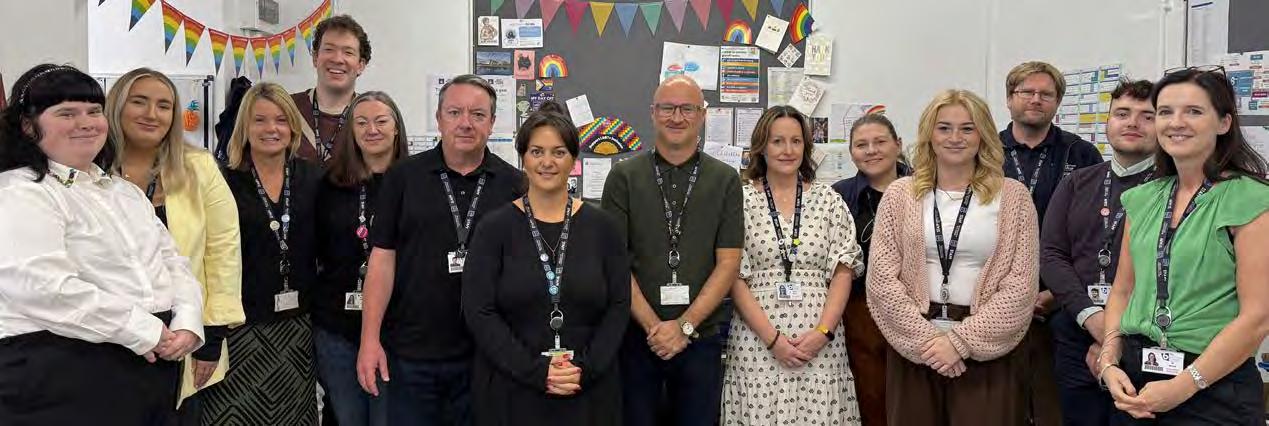
Based in the Learning Assistance Base, or LAB as we call it for short, the team of Learning Support Assistants is here for anyone with additional learning needs.
We offer in-class and out of class support for a diverse range of needs, and you’ll find a member of the team in the LAB whenever you need them.
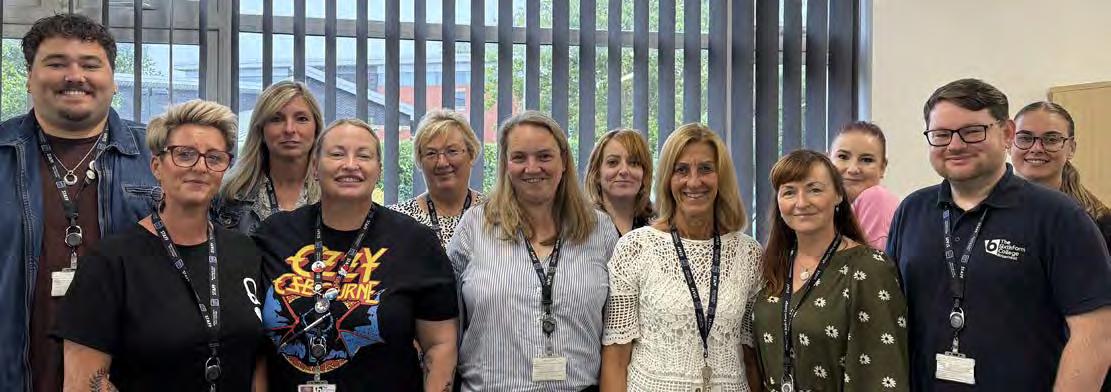







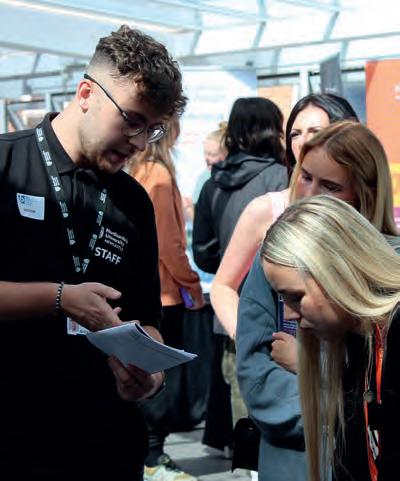
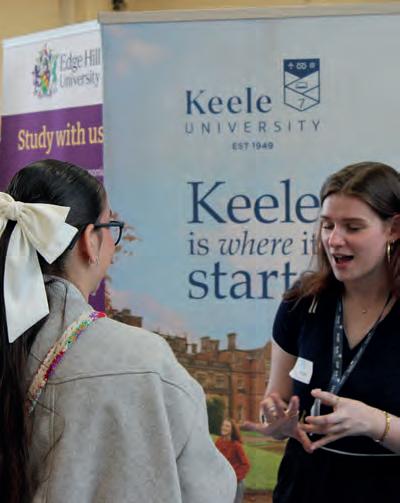
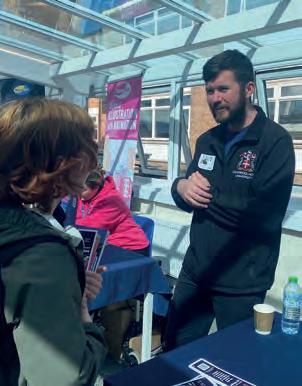

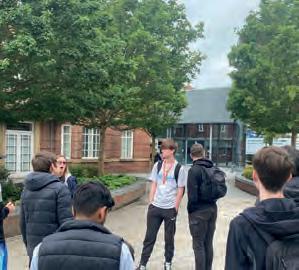


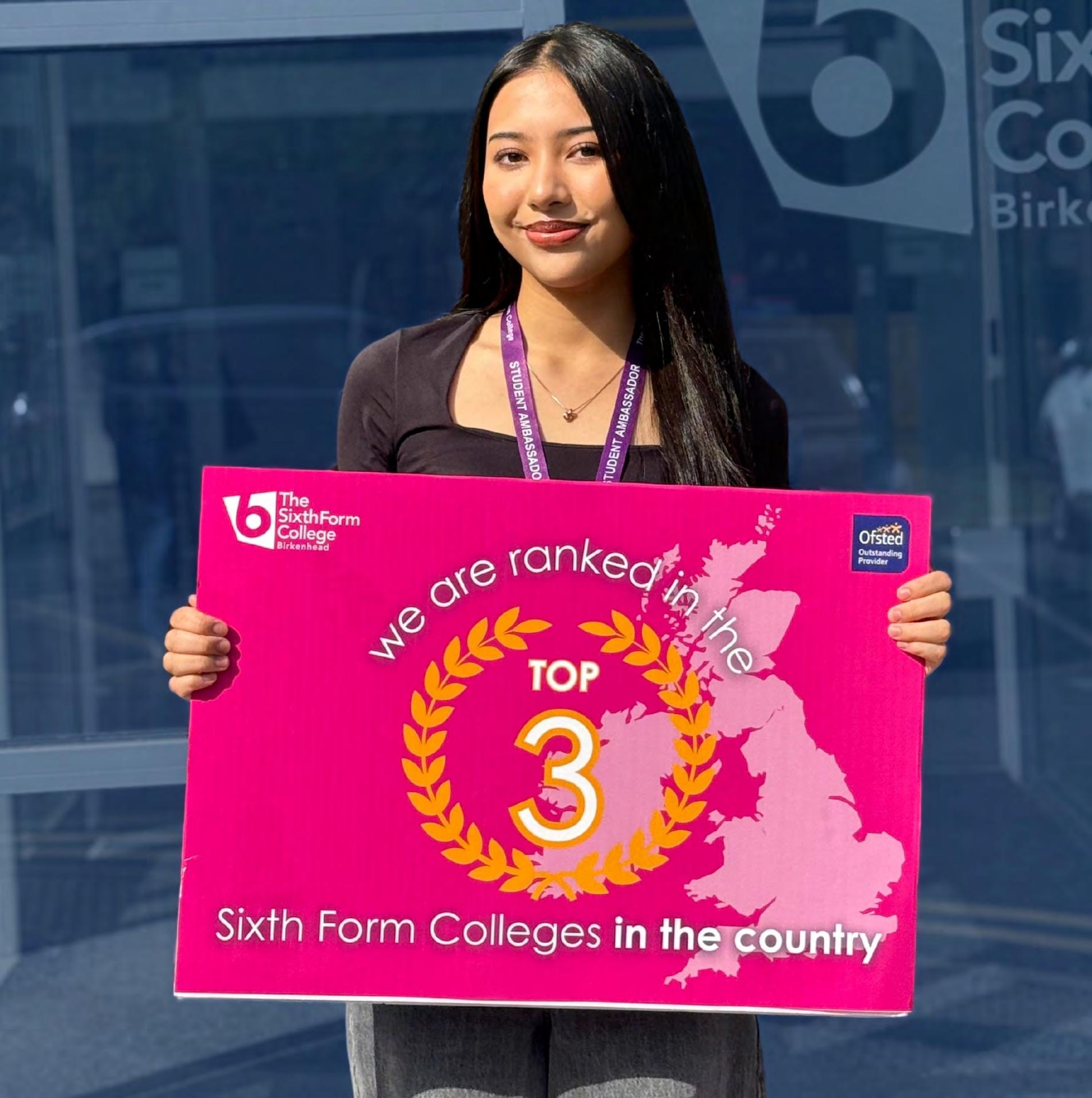
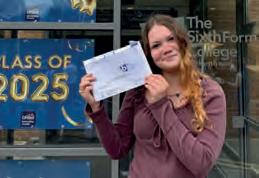

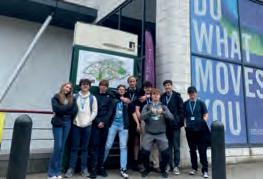
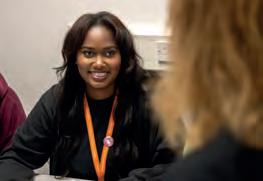
From British Sign Language and competitive football to performing arts and creative workshops, our thriving clubs & activities help students make friends and pursue their passions.
Students travel to cities such as New York, Paris, Berlin, and cultural landmarks and academic destinations across the UK through subject-based and whole-College excursions.
Events such as Halloween Fest, Christmas Fest, Prom, and Valentine’s Bake Sales bring the College community together for fun and purpose.
Students compete nationally in Law, STEM, and debating, with notable success in the European Youth Parliament and Bar Mock Trial finals.
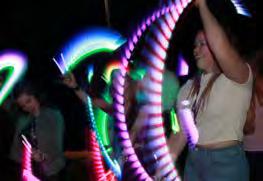

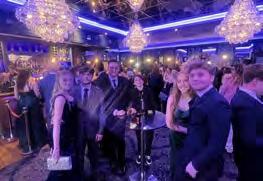

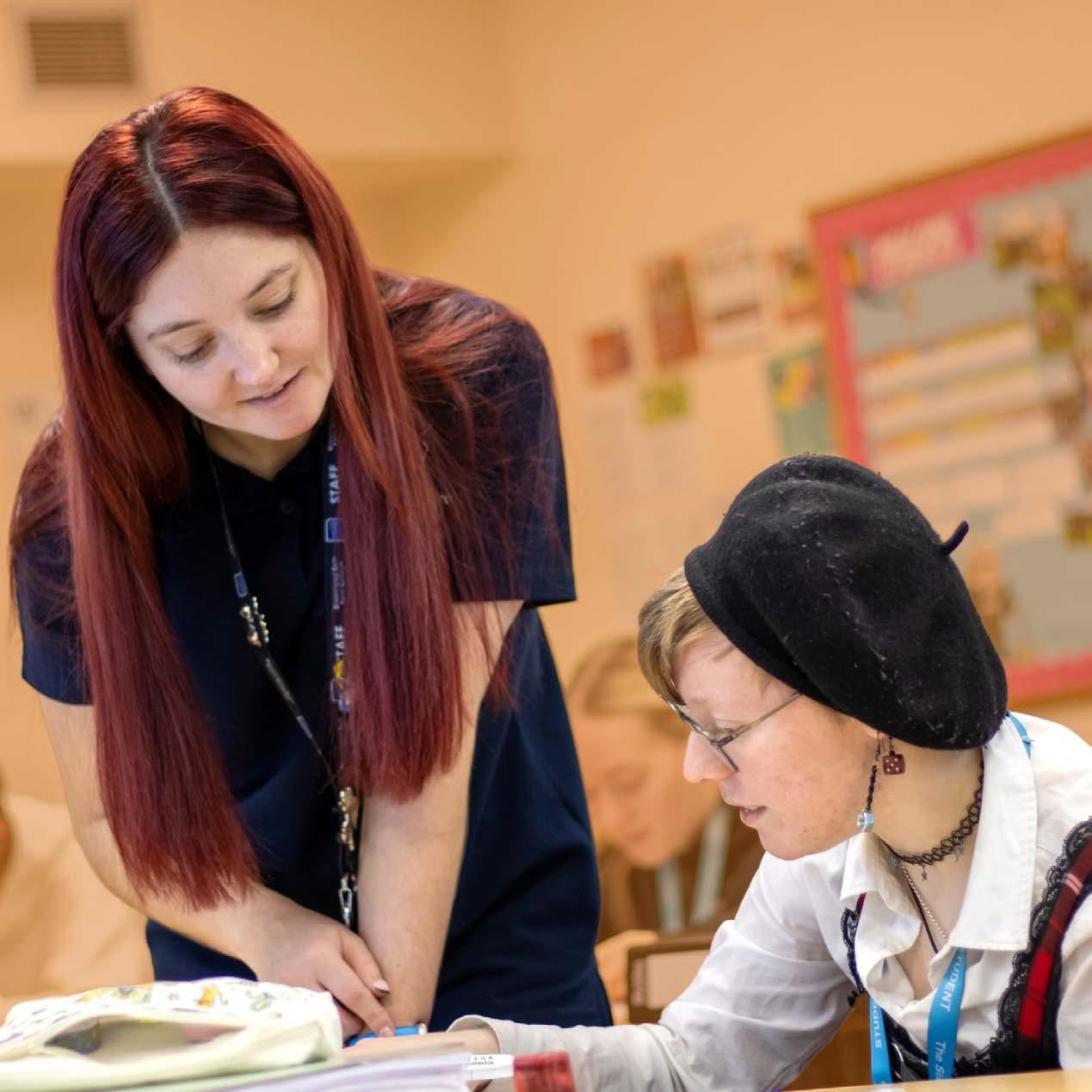
From the moment you apply, right through to when you join us, we’ll work with you to ensure we guide you onto the best courses for your career aspirations.
We offer A Levels and BTECs.
Short for Advanced Level. We offer 29 A Level options: some will be subjects you’ve studied at GCSE and some will be new. A Levels are highly valued by universities and employers so they can open doors to further study and careers.
An alternative to A Levels, BTECs are more vocational and can be useful if you know what career you’re working towards. Unlike A Levels, BTECs are continually assessed throughout the course with a combination of coursework, practical projects and exams.
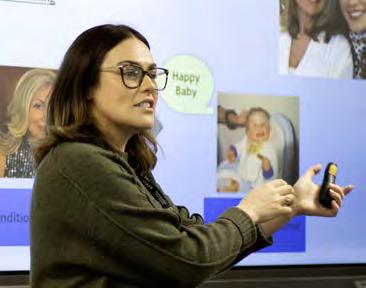
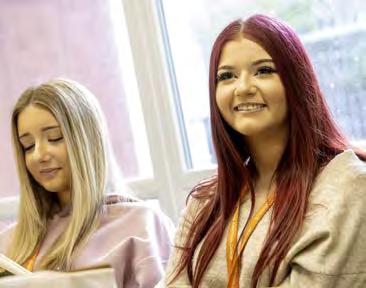
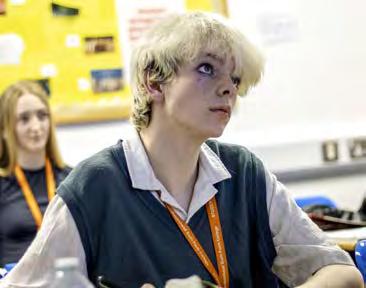
(Fine Art)
Additional entry requirements are a minimum of the following GCSE Grades:
Grade 4 in Art and Design or related Design Technology subject
Grade 6 in Maths higher paper and either Grade 6 in Biology and two Grade 5s in Chemistry and Physics or two Grade 6s in Combined Science
Business A Level requires a Grade 5 in Maths. A Level and BTEC qualifications are available in this subject. The type of qualification studied will be finalised at enrolment taking into account overall GCSE performance
Grade 6 in Maths and either Grade 6 in Chemistry and two Grade 5s in Biology and Physics or two Grade 6s in Combined Science
Grade 6 in Maths
Sufficient technical skill to participate in advanced technique classes, gained through prior dance school or external training, GCSE Dance or equivalent
in
or at least one Grade 5 in
Grade 5 in
and Grade 5 in
Grade 4 in a relevant creative subject or a portfolio of
Choosing your courses:
You can study A Levels or BTECs or a combination of both. You will study three subject options, which can include a combination of A Levels and BTECs.
Additional entry requirements are a minimum of the following GCSE Grades:
Law A Level requires a Grade 5 in English Language. A Level and BTEC qualifications are available in this subject. The type of qualification studied will be finalised at enrolment taking into account overall GCSE performance
Grade 6 in Maths and at least one other Grade 6 and one Grade 5
Grade 7 in Maths and take Maths A Level alongside Further Maths
Applicants will be required to attend a technical class. Physical Education
Grade 4 in PE GCSE and Grade 4 in all Sciences
Grade 6 in Maths and either Grade 6 in Physics and two Grade 5s in Biology and Chemistry or two Grade 6s in Combined Science
Grade 5 in Maths (higher paper)
and Design or related Design Technology subject
Entry Requirements:
Five GCSEs including Maths and English Language: a minimum of three GCSEs at grade 4 and two GCSEs at Grade 5, plus additional entry requirements for individual subjects.
Please note: Level 2 BTECs are not accepted as part of the entry criteria.
Exam Board: AQA
Additional Entry Requirements:
Grade 4 in Art and Design or related Design Technology subject.
Overview:
Fine Art is about exploring ideas and expressing yourself visually through a wide range of media. This course allows you to develop creativity and self-expression, improve technical skills, and critical understanding while building a personal portfolio of artwork. You will investigate artists, art movements, experiment with materials, and develop and refine your own artistic voice.
What will you study?
You will explore Painting, Drawing, Printmaking, Instillation, Papercut, Print, Sculpture, Mixed media, and Digital processes. Alongside practical work, you will study the context of art and develop a written personal investigation into themes that inspire you.
Assessment
Assessment is through a practical portfolio and an externally set project, which follows the artist process of developing purposeful research, experimentation and development work leading to resolved final artworks.
Skills you will develop
You will build confidence in creative experimentation and independent project work, which allows for personal expression, visual communication, encourages innovation, creative problem-solving and self-discovery while also fostering a deeper appreciation for diverse cultural perspectives and providing a foundational understanding of artistic principles and history.
Studying Fine Art cultivates creativity, critical thinking, and technical skills applicable to many careers in the creative and cultural industries, such as design, illustration, curation, art therapy, architecture, media, and the wider arts industry.
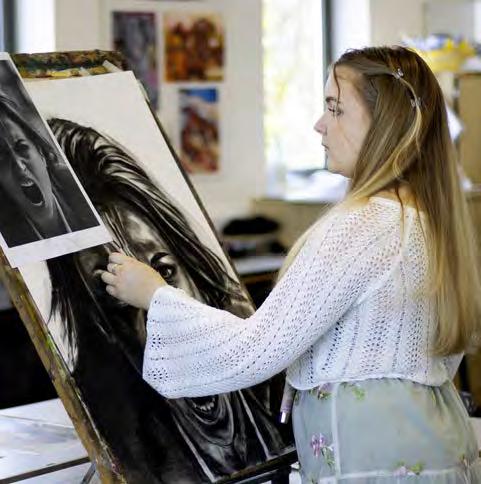
Exam Board: OCR
Additional Entry Requirements:
Grade 6 in Maths Higher Paper and either Grade 6 in Biology and two Grade 5s in Chemistry and Physics or two Grade 6s in Combined Science.
Overview:
Biology explores the science of life, from the smallest cells to complex ecosystems. This course helps you understand how organisms function, interact, and evolve. It encourages curiosity about the natural world while applying scientific methods to explain key biological processes.
What will you study?
You will investigate a broad range of topics, including cell biology, genetics, biodiversity, physiology, evolution, and ecosystems. Practical laboratory work is integrated throughout, giving you hands-on experience of scientific techniques. The course links biological theory with real-world applications in health, the environment, and industry.
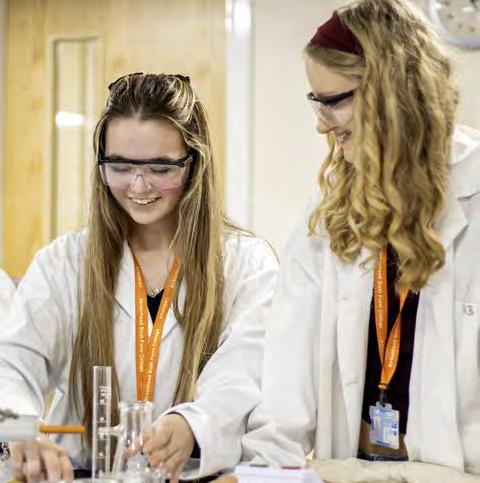
Assessment
Assessment is through exams at the end of Year 2 and a practical endorsement. 10% of exam marks are based on mathematical assessment in the context of Biology.
Skills you will develop
You will develop analytical and problem-solving skills, scientific reasoning, experimental design, data handling, and communication – all vital for further study and employment.
Biology is excellent preparation for university courses such as medicine, veterinary science, nursing, biochemistry, environmental science, and psychology, as well as careers in research, healthcare, and conservation.
Exam Board: Edexcel
Additional Entry Requirements:
Grade 5 in Maths
Overview:
Business Studies gives you insight into how organisations operate in a competitive world. You will explore decision-making, strategy, and the wider environment that affects businesses of all sizes, from start-ups to global corporations.
What will you study?
The course covers four key themes: marketing and people, managing business activities, business decisions and strategy, and global business. You will investigate case studies, applying theory to real-world scenarios. Topics include finance, operations, human resources, globalisation, and ethical considerations.

Assessment is through written examinations at the end of year 2. Exams test your ability to apply business knowledge, analyse data, and evaluate strategies across a variety of business contexts.
Skills you will develop
You will build analytical and evaluative skills, develop confidence in interpreting financial and market data, and improve problem-solving, teamwork, and communication skills - all transferable to many fields.
Business A Level supports progression to university courses such as business management, marketing, finance, and economics, as well as careers in management, accountancy, consultancy, and entrepreneurship.
Exam Board: Edexcel
Overview:
The BTEC Extended Certificate in Business provides a practical introduction to the world of business. You will explore how organisations operate in the UK, learning about marketing, finance, and management in real-life contexts. The course suits students who prefer applied learning alongside theory.
What will you study?
The qualification is made up of mandatory and optional units. Core units include Exploring Business, Developing a Marketing Campaign, and Personal and Business Finance. The optional unit allows you to focus on how recruitment and selection contributes to business success. Assignments are centred on actual businesses both in the UK and internationally.
Assessment
Assessment combines coursework, controlled assessments, and an external examination, giving a balanced mix of practical and written tasks.
Skills you will develop
You will gain research, project management, and communication skills, alongside financial awareness and problem-solving – all valued by employers and higher education.
Future Pathways
This BTEC supports progression to business-related university courses or apprenticeships, and careers in management, finance, marketing, retail, or administration.
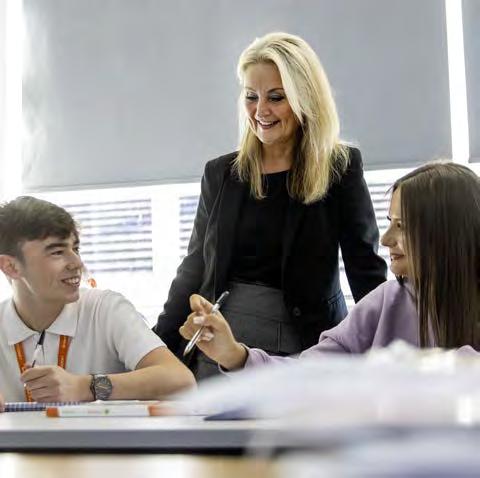
Exam Board: OCR
Additional Entry Requirements:
Grade 6 in Maths and either Grade 6 in Chemistry and two Grade 5s in Biology and Physics or two Grade 6s in Combined Science.
Overview:
Chemistry explores the structure of matter, the reactions that shape our world, and the principles that underpin scientific discovery. This course develops your ability to think logically, apply problem-solving skills, and make connections between theory and real-life applications.
What will you study?
You will study physical, inorganic, and organic chemistry. Topics include atomic structure, bonding, energetics, kinetics, equilibrium, periodicity, transition metals, and organic reactions. Practical laboratory work is embedded throughout, giving you the opportunity to apply concepts experimentally and gain confidence with scientific methods.
Assessment
Assessment is through exams at the end of Year 2 and a practical endorsement. 20% of exam marks are based on mathematical assessment in the context of Chemistry.
Skills you will develop
You will strengthen your analytical skills, mathematical reasoning, experimental design, data handling, and problem-solving abilities – all highly transferable across disciplines. Alongside the course, students can take part in enrichment activities such as the Cambridge Chemistry Challenge (Year 1), Young Analyst of the Year (Year 1), and the Chemistry Olympiad (Year 2). These provide excellent stretch and challenge opportunities and are a strong addition to UCAS applications, particularly for those applying to Russell Group universities.
Future Pathways
Chemistry provides excellent preparation for university courses in chemistry, medicine, dentistry, veterinary science, engineering, biochemistry, and environmental science, as well as careers in research, pharmaceuticals, and healthcare.
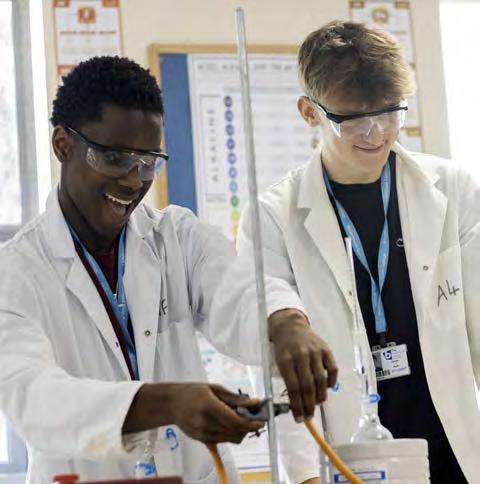
Exam Board: OCR
Additional Entry Requirements:
Grade 6 in Maths.
Overview:
Computer Science is about understanding how computers work and how they can be used to solve problems. This course develops your logical thinking, creativity, and technical skills while exploring the impact of computing on individuals, businesses, and society.
What will you study?
The course covers programming, algorithms, and problem-solving, alongside theory such as computer systems, data representation, networking, and cybersecurity. You will learn to design, write, and test code, as well as explore the ethical and legal aspects of technology.

Assessment
Assessment is 80% written exam at the end of Year 2 (Paper 1 and Paper 2, each worth 40%), and 20% practical coursework project.
Skills you will develop
You will build strong skills in logical reasoning, coding, analytical thinking, project management, and independent problem-solving – all highly valuable in the digital world.
Future Pathways
Computer Science opens doors to university study in computing, software engineering, data science, artificial intelligence, and related fields, as well as careers in programming, IT, systems analysis, and emerging technologies.
Exam Board: AQA
Additional Entry Requirements:
Sufficient technical skill to participate in advanced technique classes, gained through prior dance school or external training, GCSE Dance, or BTEC Level 2 Dance.
Overview:
Dance is both a physical and intellectual discipline, combining performance with analysis and creativity. Students must have a passion for dance, enjoy performing, and demonstrate commitment. This course allows you to develop as a performer, choreographer, and critic, while exploring dance as an art form in historical and contemporary contexts.
What will you study?
You will study the technical and expressive skills needed for performance, choreograph original work, and analyse professional repertoire. Areas include contemporary and jazz dance, the role of choreographers, and the social and cultural influences that shape dance.
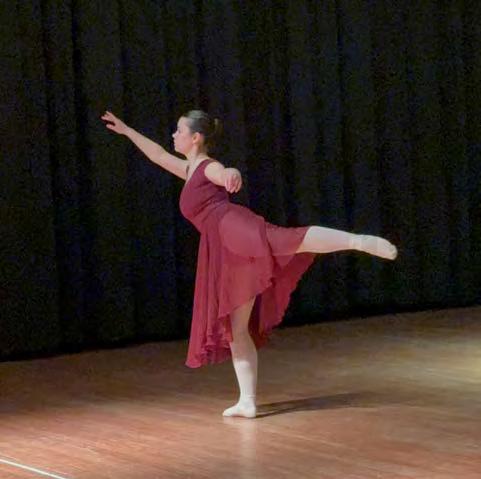
Assessment
Assessment is at the end of Year 2: 50% written exam, 25% performance, and 25% choreography.
Skills you will develop
You will gain physical and creative skills, critical thinking, communication, collaboration, and confidence in performance – all transferable beyond dance.
Dance A Level supports progression to higher education in dance, performing arts, choreography, and teaching, as well as careers in the creative industries, fitness, education, and arts management.
Exam Board: AQA
Overview:
A Level Drama and Theatre is a dynamic and inspiring course that blends practical performance with the study of scripts, styles, and live productions. It challenges you to think critically and creatively, work collaboratively, and explore how theatre can communicate powerful ideas, provoke thought, and engage audiences in meaningful ways.
What will you study?
You will take part in both devised and scripted performances, studying influential theatre practitioners and styles. Alongside practical work, you will analyse set texts and evaluate live theatre productions, deepening your understanding of performance, design, and directing.
Assessment
Assessment is through a combination of written exam, coursework and practical performance, assessed over the 2 years.
Skills you will develop
You will strengthen performance and communication skills, creativity, teamwork, problem-solving, and confidence – all highly transferable to many fields.
Future Pathways
Drama and Theatre can lead to exciting opportunities in the creative industries – but its skills are also prized in many other sectors. Potential Pathways include; Actor, Director, Stage Management, Scriptwriter, Events Management, Lawyer, HR, Psychology or social worker.
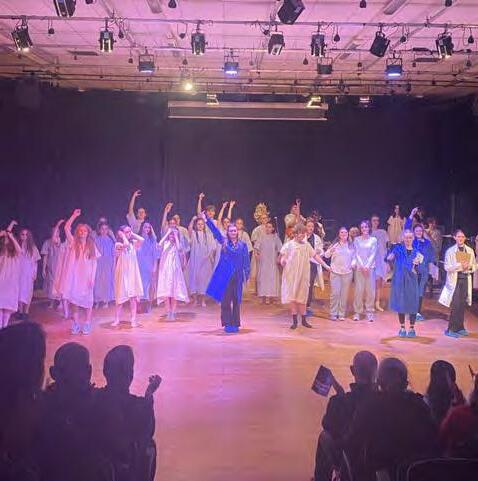
Exam Board: Edexcel
Additional Entry Requirements:
Grade 6 in Maths.
Overview:
Economics examines how individuals, businesses, and governments make choices about resources and respond to economic challenges. This course helps you analyse real-world issues such as growth, inequality, trade, and government policy, while encouraging critical debate and problem-solving.
What will you study?
The course is divided into three areas: microeconomics, macroeconomics, and trade and development. Microeconomics focuses on markets, competition, and consumer behaviour. Macroeconomics explores national and global economies, government intervention, and financial systems. Trade and development considers globalisation, emerging economies, and international policy.
Assessment
Assessment is through three written examinations at the end of Year 2, which are two hours each. All exams test data interpretation, analysis, and evaluation of real and theoretical economic issues.
Skills you will develop
You will develop skills in critical analysis, essay writing, quantitative methods, and interpreting economic data – all valuable for higher education and employment.
Future Pathways
Economics provides an excellent foundation for university courses in economics, business, finance, politics, and international relations, and careers in banking, consultancy, law, government, and global organisations.
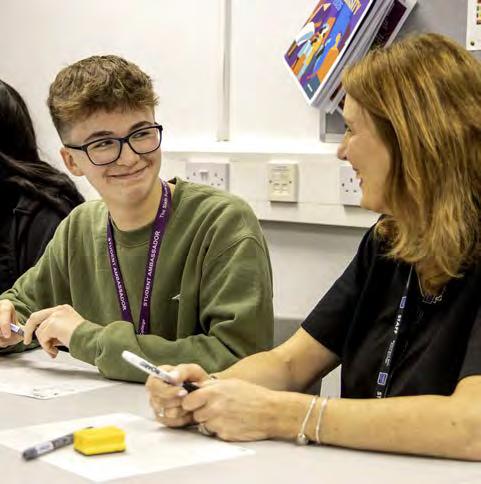
Exam Board: Eduqas
Overview:
English Language is the study of linguistics, exploring the mechanics and evolution of language, and its role within human society. This course immerses you in real-life communication, examining how meaning is created and conveyed. You will develop your skills in linguistic analysis, reflective evaluation, and creative writing across a wide range of forms and contexts.
What will you study?
In Year 1, topics include creative fiction writing, spoken language in the media, language and power, computer-mediated communication, and how identity is shaped through gender, culture, diversity, and self-representation.
In Year 2, you will explore creative non-fiction writing, language change over time, and child language acquisition. You will also complete an independent language investigation as part of your non-examined assessment.
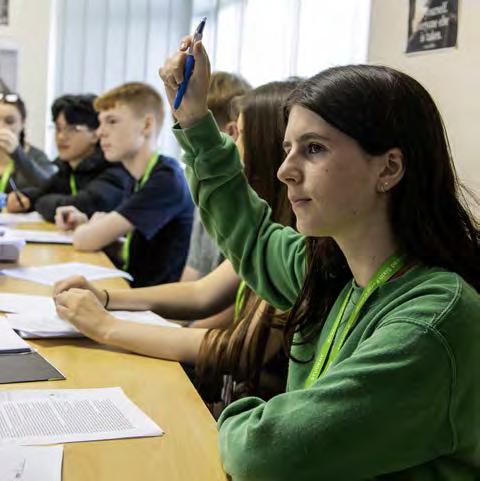
Assessment
Assessment is through: 80% written examinations at the end of Year 2 and 20% non-examination assessment (coursework) completed during both Year 1 and Year 2.
Skills you will develop
You will strengthen your analytical and evaluative skills, exploring how texts reflect and influence society and context. Through creative writing, you will learn to write with clear purpose, for a wide range of audiences and genres. You will also gain confidence in using language imaginatively and effectively, building strong communication skills valued in many fields.
English Language is excellent preparation for university courses in linguistics, media, journalism, law, education, and the creative industries, as well as careers that value clear communication, research, and critical thinking.
Exam Board: Eduqas
Additional Entry Requirements:
Two Grade 5s in English Literature and English Language.
Overview:
English Literature invites you to explore how writers use language to express ideas, challenge perspectives, and capture the human experience. This course develops your ability to read critically, discuss interpretations, and engage with a wide range of texts across time and genre.
What will you study?
You will study prose, poetry, and drama from different periods, including Shakespeare, modern works, and texts from across literary traditions. Comparative study and critical analysis are central, encouraging you to consider how literature reflects society and influences thought. Independent reading and wider critical perspectives are also key parts of the course.
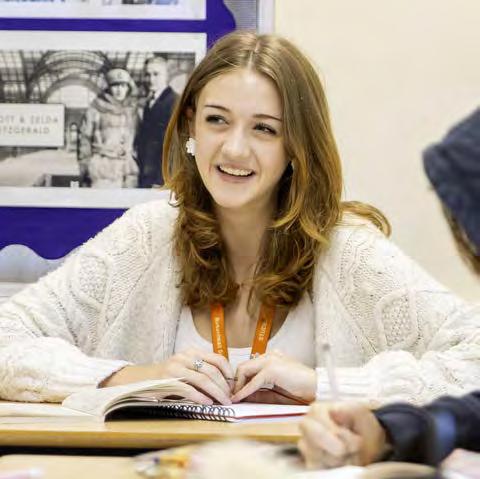
Assessment is at the end of Year 2: 80% written examinations and 20% coursework, testing your ability to analyse, compare, and evaluate literary texts.
Skills you will develop
You will strengthen your critical reading, essay writing, independent research, and communication skills, as well as your ability to form and defend interpretations.
English Literature prepares you for university courses in English, humanities, law, history, and education, as well as careers in teaching, publishing, journalism, media, and any field requiring strong analytical and communication skills.
Exam Board: AQA
Additional Entry Requirements:
Grade 5 in Maths and a Grade 5 in Biology or at least one Grade 5 in Combined Science.
Overview:
Environmental Science explores the interaction between humans and the natural world, examining how we use resources and manage environmental challenges. This course develops scientific understanding, critical thinking, and problem-solving, with a strong focus on sustainability and the future of our planet.
What will you study?
You will study topics such as ecosystems, biodiversity, energy resources, pollution, the atmosphere, and climate change. The course also covers sustainability, food production, water resources, and how science informs environmental decision-making. Practical work is central, giving you experience of fieldwork and data analysis.
Assessment
Assessment is through written examinations at the end of Year 2, testing your ability to apply knowledge, analyse evidence, and evaluate environmental issues.
Skills you will develop
You will develop skills in data collection and analysis, research, evaluation of scientific evidence, and problem-solving – all valuable in science and beyond.
Future Pathways
Environmental Science supports progression to university courses in environmental science, ecology, marine biology, conservation, and sustainability, as well as careers in environmental consultancy, policy, research, and education.
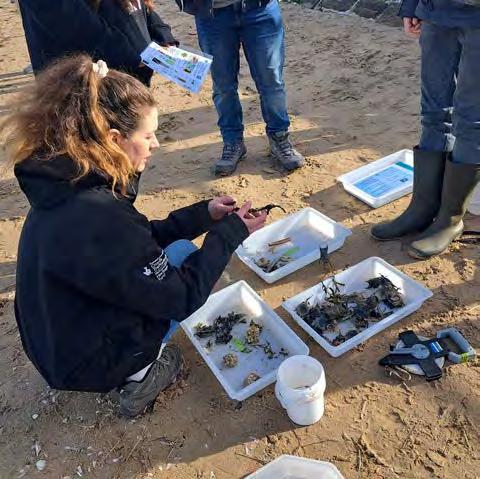
Exam Board: Eduqas
Overview:
Film Studies explores how films create meaning and influence audiences, combining analysis of film texts with opportunities for creative production. The course develops your understanding of film as an art form and as a powerful medium of communication.
What will you study?
You will study a wide range of films from different genres, periods, and cultures, including both mainstream and independent cinema. Topics include film form, representation, spectatorship, ideology, and the global film industry. Alongside analysis, you will create your own practical work such as a screenplay or short film.
Assessment
Assessment is 70% written examination at the end of Year 2 and 30% coursework.
Skills you will develop
You will develop critical and analytical skills as well as gain creative production experience and technical knowledge of film – all transferable across academic and professional fields.
Future Pathways
Film Studies combines well with a whole range of other A Levels and prepares you for a range of university courses, as well as careers in the creative industries and professions valuing analytical and communication skills.

Exam Board: AQA
Additional Entry Requirements:
Grade 5 in Maths and Grade 5 in Geography.
Overview:
Geography explores the relationship between people and the environment, examining both physical and human processes that shape our world. This course encourages curiosity about global issues such as climate change, urbanisation, and development, while fostering analytical and evaluative skills.
What will you study?
You will study a balance of physical and human geography. Physical topics include water and carbon cycles, coastal systems, and hazards. Human topics cover global systems and governance, changing places, and population. Fieldwork and independent investigation are integral, allowing you to apply theory in real-world contexts.

Assessment is 80% written examination at the end of Year 2 and 20% practical geographical investigation completed in Year 1.
Skills you will develop
You will develop research and fieldwork skills, data analysis, problemsolving, and critical thinking, alongside communication and decisionmaking – all valuable for higher education and employment.
Geography provides a strong foundation for university courses in geography, environmental science, urban planning, and international development, as well as careers in sustainability, research, education, and policy-making.
Exam Board: AQA
Additional Entry Requirements:
Grade 4 in a relevant creative subject or a portfolio of artwork.
Overview:
Graphic Communication focuses on visual design, creativity, and problem-solving through images, text, and digital media. This course encourages you to explore practical design skills while developing your ability to communicate ideas effectively and creatively.
What will you study?
You will investigate image making, typography, animation, branding, advertising, and interactive design. Projects allow you to explore both traditional and digital media, including drawing techniques, photography and software-based design. Independent work is central, encouraging you to create personal and meaningful design outcomes.

Assessment is 60% coursework and 40% exam projects, both completed through practical design briefs and written reflection.
You will gain creative and technical design skills, digital proficiency, project management, critical analysis, and the ability to communicate visually – all highly transferable in creative industries.
Graphic Communication supports progression to university courses in graphic design, illustration, advertising, and digital media, and careers in design studios, marketing, publishing, and creative industries.
Exam Board: Edexcel
Overview:
Health and Social Care is an applied qualification that explores human development, wellbeing, care services, and healthcare sciences. The course prepares you for further study or employment in the sector by linking academic knowledge to real-world care situations.
What will you study?
You will study key modules including Human Lifespan and Development, Human Biology and Health, Principles of Health and Social Care Practice, and Health Science. These units combine theory with applied learning, giving you insight into professional practice and the skills required to support individuals.
Assessment
Assessment is through a mixture of external exams and internal assignments completed across the two years.
Skills you will develop
You will develop knowledge of health and social care practice alongside transferable skills such as communication, problem-solving, empathy, and teamwork. You will also gain confidence in applying theory to real-life scenarios.
Future Pathways
This BTEC supports progression to higher education in nursing, social work, physiotherapy, occupational therapy, and related fields, as well as careers in health, social care, policing, and the armed services.
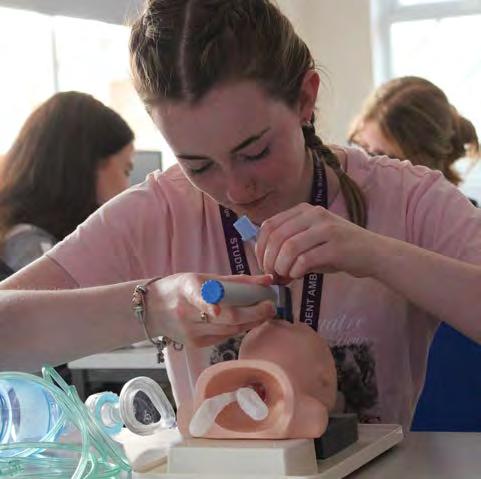
Exam Board: Edexcel
Overview:
History develops your understanding of past events, societies, and leaders, and how they continue to shape the world today. This course encourages critical thinking, debate, and the ability to analyse complex causes and consequences across different periods and cultures.
What will you study?
With the Russia and China pathway, you will explore major turning points in 20th-century history. Topics include the development of Communist rule in Russia, from Lenin to Stalin, and the transformation of China under Mao. You will also study Britain and Ireland, examining themes of power, politics, and conflict. Independent research forms part of the course through a personal historical investigation.
Assessment
Assessment is through written examinations at the end of Year 2 and a coursework component based on your independent investigation.
Skills you will develop
You will gain skills in critical analysis, extended writing, evaluating sources and interpretations, and independent research – all highly transferable to further study and employment.
Future Pathways
History is excellent preparation for university courses in history, politics, international relations, and law, as well as careers in research, education, journalism, civil service, and business.
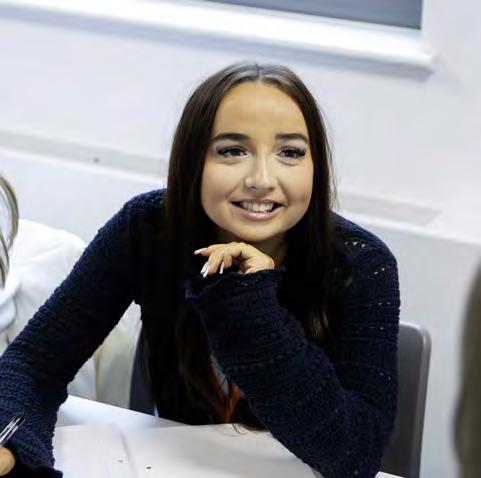
Exam Board: Edexcel
Overview:
The BTEC Level 3 Extended Certificate in IT provides a practical introduction to digital technologies and their applications in the modern world. This course combines technical knowledge with hands-on skills, preparing you for further study or employment in the fast-growing IT sector.
What will you study?
You will study key areas including website development, Information technology systems, cyber security and incident management, and relational database development. The course balances theory with applied learning, giving you opportunities to work on realistic projects that reflect how IT is used in organisations.

Assessment
Assessment is through a mix of external exams, and coursework, allowing you to demonstrate both technical understanding and practical ability.
Skills you will develop
You will develop skills in problem-solving, data management, digital communication, and project organisation, alongside technical knowledge of software and systems.
Future Pathways
This qualification supports progression to university courses in computing, information systems, as well as careers in technical support, systems management, web design, and digital marketing and other transferable skills to pursue other career interests.
Exam Board: Eduqas
Additional Entry Requirements:
Grade 6 in French / Spanish.
Overview:
Studying French or Spanish at A Level develops your ability to communicate fluently and confidently in another language while exploring the societies, cultures, and politics of French- or Spanish-speaking countries. The course combines language learning with analysis of cultural and social themes, literature, and film.
What will you study?
You will study themes such as family life, technology, regional celebrations, education and entering the world of work in French or Spanish-speaking contexts. The courses also include the study of a literary text and a film, offering deeper insight into culture and creative expression.
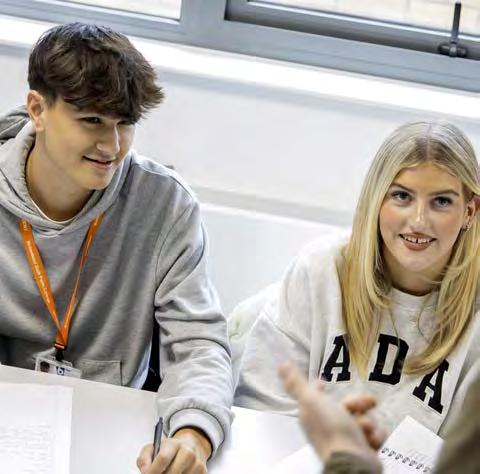
Assessment
Assessment is through oral, listening, reading, and written exams at the end of Year 2.
Skills you will develop
You will strengthen your communication, analysis, essay-writing, and research skills, alongside cultural awareness and adaptability – all highly valued by universities and employers.
French and Spanish support progression to university courses in modern languages, politics, history, law, and international business, as well as careers in translation, teaching, journalism, diplomacy, and global industries.
Exam Board: OCR
Additional Entry Requirements:
Grade 5 in English Language.
Overview:
Law A Level introduces you to the English legal system, the creation of laws, and the application of justice. The course develops your ability to think logically, construct well-reasoned arguments, and evaluate the impact of law on individuals and society.
What will you study?
You will study the nature of law, the English legal system, and areas of substantive law including criminal law, tort law, and contract law. The course also explores the role of judges, Parliament, and the legal profession, alongside key cases and statutes.
Assessment
Assessment is by written examinations at the end of Year 2, testing your knowledge, application of legal principles, and evaluative skills.
Skills you will develop
You will enhance your analytical and critical thinking, problem-solving, essay-writing abilities, as well as your capacity to apply abstract principles to real-life scenarios. These are highly transferable across many fields.
Future Pathways
Law A Level provides a strong foundation for progression to university courses in law, criminology, politics, and business, and for careers in the legal profession, the civil service, policing, journalism, and management.
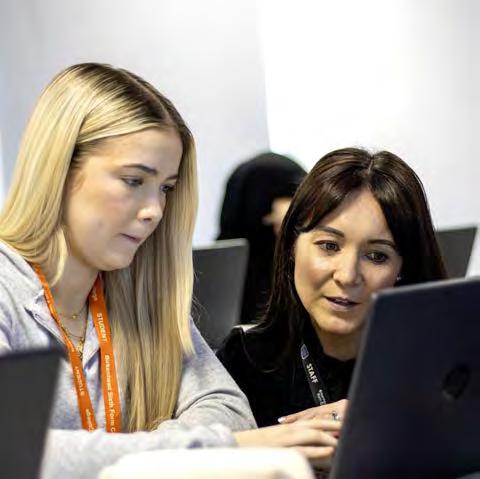
Exam Board: Edexcel
Overview:
BTEC Applied Law provides a practical and applied introduction to Law. This course focuses on how laws are created and applied, while giving you opportunities to explore real-life legal cases and scenarios.
What will you study?
You will study core areas of English Law including Civil Courts, Advanced Criminal Law, and Tort Law. The course links legal principles to practical examples, helping you understand how the law operates in everyday situations. Independent assignments and external assessments ensure you can apply your knowledge in both written and applied contexts.
Assessment
Assessment is through a mix of coursework and external exams: Year 1 is 50% coursework and 50% external exam; Year 2 is 40% coursework and 60% external exam.
Skills you will develop
You will gain skills in Legal Research, Analysing Cases, Problem-Solving, Critical Thinking, and Written Communication, alongside the ability to apply Law to real world scenarios.
BTEC Applied Law supports progression to a range of Higher Education courses such as Law, Criminology and Business, as well as careers in the Legal Profession, Public Services, and Administration.
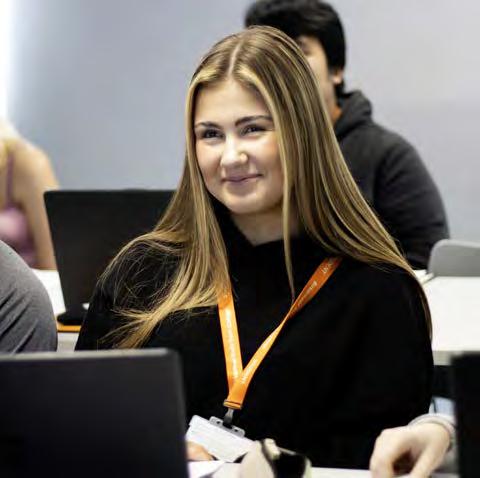
Exam Board: AQA
Additional Entry Requirements:
Grade 6 in Maths and at least one other Grade 6 and one Grade 5.
Overview:
Mathematics is about problem-solving, logical reasoning, and applying abstract ideas to real-world contexts. This course challenges you to think critically and creatively, while developing skills that are highly valued in a wide range of careers and university courses.
What will you study?
The course covers pure mathematics, mechanics, and statistics. In pure mathematics you will study algebra, geometry, trigonometry, calculus, and proof. Mechanics applies mathematics to forces, motion, and physical problems, while statistics focuses on data analysis, probability, and interpretation.
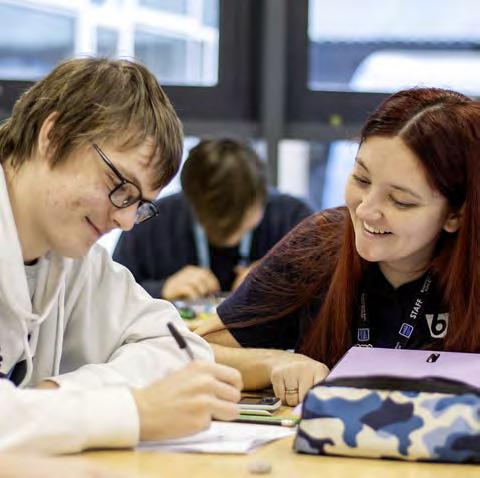
Assessment is through written examinations at the end of Year 2, with 67% of marks on pure mathematics and 33% of marks on applied components.
Skills you will develop
You will strengthen logical reasoning, problem-solving, analytical thinking, and quantitative skills, as well as the ability to apply mathematical methods to practical and theoretical problems.
Mathematics is excellent preparation for university courses in maths, science, engineering, medicine, economics and computing as well as careers in business, finance and technology.
Exam Board: AQA
Additional Entry Requirements:
Grade 7 in Maths and A Level Maths must be taken alongside A Level Further Maths.
Overview:
Further Mathematics extends the topics covered in A Level Mathematics and introduces new, more advanced areas. It is ideal for students who enjoy mathematics, want to challenge themselves, and are considering university courses with a strong mathematical focus.
What will you study?
You will study additional pure mathematics alongside the applied options of statistics and discrete mathematics. Topics include complex numbers, matrices, differential equations, and advanced algebra, giving you greater breadth and depth in mathematical understanding.
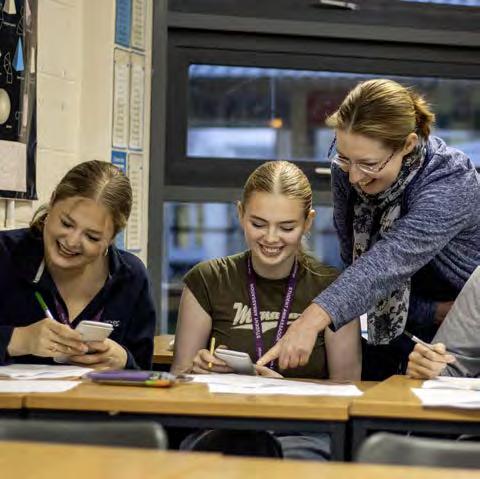
Assessment
Assessment is through written examinations at the end of Year 2, with a balance of compulsory pure mathematics and optional applied content.
You will develop exceptional problem-solving, logical reasoning, and abstract thinking skills, alongside resilience and creativity in tackling challenging concepts.
Further Mathematics is highly valued by universities, especially for courses in mathematics, physics, engineering, economics, and computer science. It also opens pathways to careers in research, finance, technology, and data analysis.
Exam Board: Eduqas
Overview:
Media Studies explores how media texts are created, consumed, and interpreted in a global context. This course develops your critical understanding of media industries, audiences, and representations, while also giving you opportunities for creative production.
What will you study?
You will analyse a wide range of media forms, including film, television, advertising, newspapers, magazines, music videos, and online platforms. The course examines key issues such as media language, representation, audience theory, and the political and economic role of the media. Alongside analysis, you will produce your own media coursework project, such as a magazine, short film, or website.
Assessment
Assessment is 70% exams at the end of Year 2 and 30% coursework.
Skills you will develop
You will strengthen your analytical, evaluative, and research skills, alongside creativity, digital design, and communication – skills valued across academic and professional fields.
Future Pathways
Media Studies supports progression to university courses in media, film, communications, journalism, and cultural studies, as well as careers in creative industries, marketing, and digital media.
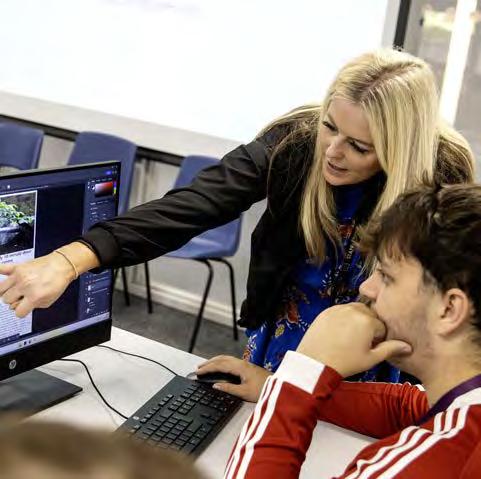
Exam Board: Edexcel
Overview:
This course provides a practical and creative introduction to the world of music technology and digital production. You will develop technical and artistic skills in creating, editing, and producing music using industry-standard software and equipment, preparing you for progression into the modern music and creative industries.
What will you study?
You will explore areas such as sequencing, recording, mixing, and sound design, alongside music theory in context. Projects allow you to develop your own compositions and productions while building technical expertise. You will also investigate how the music industry operates and how digital skills are applied in professional settings.
Assessment
Assessment is 33% externally set assessment and 67% ongoing coursework, projects, and practical work.
Skills you will develop
You will build skills in digital audio production, creativity, problem-solving, teamwork, and project management, as well as confidence in using technology to produce professional outcomes.
Future Pathways
This qualification supports progression to higher education courses in music technology, sound engineering, and production, as well as careers in recording, live sound, composing, broadcasting, and the wider creative industries.

Exam Board: AQA
Additional Entry Requirements:
Grade 4 in PE GCSE and Grade 4 in all Sciences.
Overview:
Physical Education combines scientific study with practical performance, exploring how the body and mind work in sporting contexts. This course develops your understanding of anatomy, physiology, psychology, and contemporary issues in sport, alongside opportunities to improve and analyse performance.
What will you study?
You will study applied anatomy and physiology, biomechanics, skill acquisition, sport psychology, and the role of sport in society. Alongside theory, you will focus on your own practical performance in a chosen sport and carry out analysis to evaluate strengths and areas for improvement.
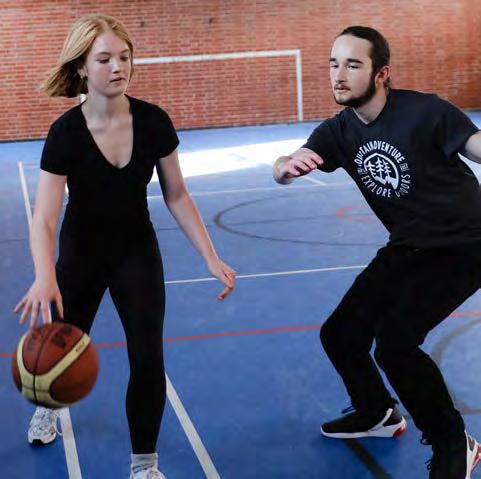
Assessment
Assessment is 70% exams at the end of Year 2, 15% practical performance, and 15% practical analysis.
Skills you will develop
You will develop analytical and evaluative skills, scientific understanding, communication, and leadership, as well as practical performance and coaching skills.
Physical Education supports progression to university courses in sport science, physiotherapy, teaching, coaching, and related health and fitness areas, as well as careers in education, sports management, and the leisure industry.
Exam Board: Edexcel
Overview:
The BTEC Extended Certificate in Performing Arts offers a practical and applied approach to theatre and performance. Students must have a passion for the performing arts, strong commitment, and the confidence to perform in front of an audience, as well as the technical skills needed for advanced practical classes. The course develops you as a performer while providing insight into the wider industry through a blend of practical work, theory, and evaluation.
You will complete four units, including three core components: Investigating Practitioners’ Work in Performing Arts, Developing Skills and Techniques in Performance, and Group Performance. These are combined with an additional specialist unit. Each module includes both practical performance and written analysis, helping you develop skills in creativity, reflection, and collaboration.
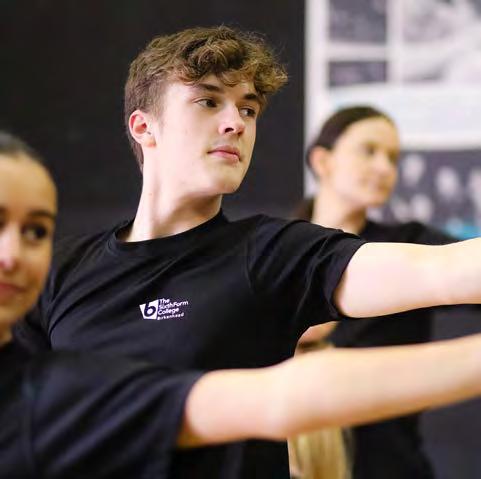
Assessment
Assessment is through a combination of internal and external tasks: two units are externally assessed and two are internally assessed. Every unit includes both practical performance and theory-based projects.
You will strengthen your performance, teamwork, communication, and creative problem-solving skills, while also learning to research and evaluate professional practice.
This BTEC supports progression to higher education courses in performing arts, drama, dance, or theatre studies, as well as careers in acting, directing, stage management, teaching, or the wider creative industries.
Exam Board: OCR
Additional Entry Requirements:
Grade 6 in Maths and either Grade 6 in Physics and two Grade 5s in Biology and Chemistry or two Grade 6s in Combined Science.
Overview:
Physics explores the fundamental principles that explain how the universe works, from the smallest particles to the largest galaxies. This course challenges you to think logically, solve problems, and apply mathematics to scientific concepts with realworld applications.
What will you study?
You will cover topics including forces and motion, electricity, waves, quantum physics, thermal physics, nuclear and particle physics, and astrophysics. Practical experiments are integrated throughout, allowing you to apply theory and build confidence in investigative science.
Assessment
Assessment is through exams at the end of Year 2 and a practical endorsement. 40% of exam marks are based on mathematical assessment in the context of physics.
Skills you will develop
You will develop strong analytical and mathematical skills, experimental design, problem-solving, and logical reasoning, alongside resilience when tackling complex ideas.
Future Pathways
Physics provides excellent preparation for university courses in physics, engineering, computer science, and mathematics, as well as careers in research, technology, data science, healthcare, and aerospace.
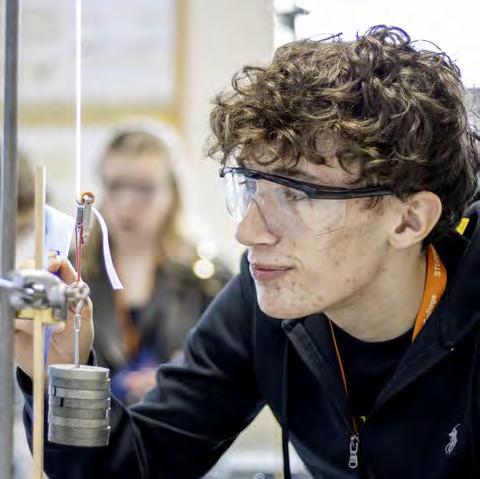
Exam Board: Edexcel
Overview:
Politics explores how power is distributed, decisions are made, and societies are governed. This course develops your understanding of political systems in the UK and the USA, encouraging debate, critical thinking, and engagement with current affairs.
What will you study?
You will study UK politics, including democracy, political participation, political parties, and voting behaviour. The course also covers UK government, examining the constitution, Parliament, the Prime Minister, and relations between the branches of government. In addition, you will explore political ideologies such as liberalism, conservatism, socialism, and feminism, and you will study US politics for comparative analysis.
Assessment
Assessment is through written examinations at the end of Year 2, testing your ability to analyse, evaluate, and construct arguments on political systems and ideas.
Skills you will develop
You will develop debating and analytical skills, essay writing, critical reasoning, and the ability to interpret and evaluate political information –all highly transferable skills.
Future Pathways
Politics is excellent preparation for university courses in politics, international relations, law, history, and economics, and careers in government, civil service, journalism, law, education, and public policy.

Exam Board: AQA
Overview:
Psychology is the scientific study of the mind and behaviour . This course explores why people think, feel, and act as they do, combining scientific research with real-world applications. It encourages critical thinking, analysis, and debate around complex human issues.
What will you study?
Core topics include Social Influence, Memory, Clinical Psychology and Mental Health, Approaches in Psychology, and Bio-Psychology. You will also study optional areas such as Cognition and Development, Schizophrenia, and Forensic Psychology. Broader themes of Issues and Debates run throughout, encouraging you to evaluate psychological research and theory.
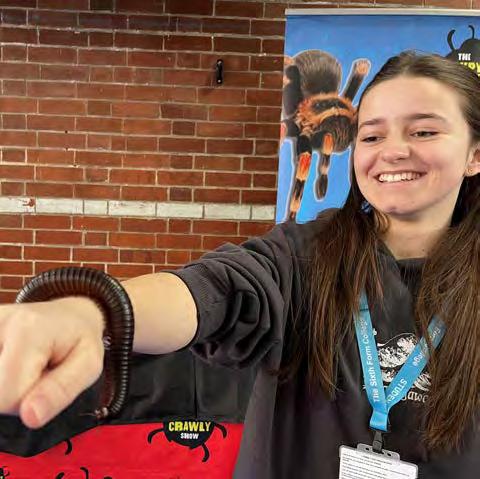
The AQA A Level Psychology course is a linear qualification assessed through three written exams at the end of two years. These assessments test your knowledge and understanding of theory, application, and evaluation of psychological theories and studies.
Skills you will develop
You will gain skills in Science and Maths, including hypothesis writing and testing, data analysis, including inferential and descriptive statistics and statistical analysis. You will also enhance your communication and research skills and engage in critical evaluation of theories and topics, and essay writing, as well as an understanding of ethical considerations in psychological investigation and the impact these pieces of research have on the economy.
Psychology is excellent preparation for university courses in Psychology, Criminology, Sociology, and Health Sciences, as well as careers in education, counselling, clinical practice, social work, and law enforcement. Having an understanding of human behaviour is invaluable for any career pathway.
Exam Board: Eduqas
Overview:
Religious Studies explores some of life’s biggest questions about belief, ethics, and the human experience. This course encourages you to think deeply, debate different perspectives, and understand how religion and philosophy shape societies and individuals.
What will you study?
The course focuses on three key areas: the study of Buddhism, philosophy of religion, and ethics. You will explore Buddhist beliefs and practices, moral theories, and philosophical arguments about existence, knowledge, and the meaning of life.

Assessment
Assessment is through written examinations testing your ability to analyse, evaluate, and construct reasoned arguments on complex issues.
Skills you will develop
You will develop critical thinking, ethical reasoning, independent research, and clear communication skills – all highly transferable.
Religious Studies is excellent preparation for university and careers in law, politics, teaching, social work, journalism, and any field that values analytical and ethical reasoning.
Exam Board: Edexcel
Additional Entry Requirements:
Two grade 4s in a Science subject.
Overview:
Applied Science is a practical course covering biology, chemistry, and physics. It combines theoretical knowledge with hands-on investigation, preparing you for further study or employment in STEM fields. The course is taught in specialist laboratories, making full use of practical resources and experiments.
What will you study?
You will study topics such as Principles and Applications of Biology, Principles and Applications of Chemistry, Principles and Applications of Physics, Practical Scientific Procedures and Techniques, and Science Investigation Skills. Each unit links theory with applied laboratory practice.
Assessment
Assessment is through a mixture of external exams and internal assignments completed across the two years.
Skills you will develop
You will build strong practical laboratory skills, data analysis, scientific investigation techniques, and the ability to apply Biology, Chemistry, and Physics in real-world contexts.
Future Pathways
Applied Science provides an excellent foundation for higher education in biomedical science, forensic science, nursing, and environmental science, as well as careers in healthcare, research, and scientific industries.
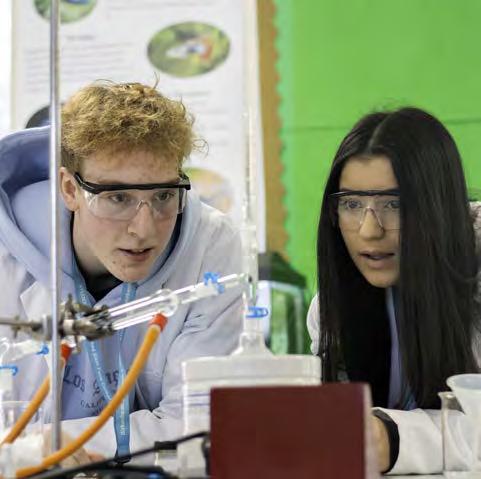
Exam Board: AQA
Overview:
Sociology explores how society works, how it changes, and how it influences people’s lives. This course encourages you to question assumptions, analyse social structures, and debate issues such as inequality, crime, and the role of institutions.
What will you study?
You will study topics including families and households, education, beliefs in society, and crime and deviance. You will also explore sociological theories and methods, learning how to evaluate evidence and interpret patterns of behaviour in society.
Assessment
Assessment is through written examinations at the end of Year 2, testing your ability to apply knowledge, analyse evidence, and evaluate sociological arguments.
Skills you will develop
You will develop critical thinking, essay writing, independent research, and analytical skills, as well as the ability to engage with complex social issues.
Future Pathways
Sociology provides a strong foundation for university courses in sociology, criminology, politics, law, and social sciences, and careers in social research, education, social work, criminal justice, and public policy.
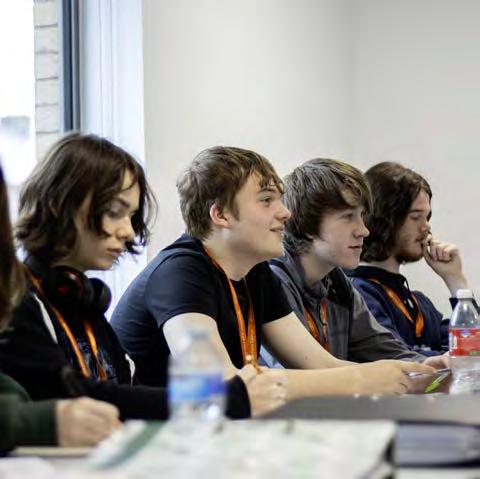
Exam Board: Edexcel
Overview:
The BTEC Extended Certificate in Sport provides a practical and applied approach to studying sport and fitness. This course is ideal for students who enjoy combining theory with hands-on learning, and who want to understand the science, training, and professional practice behind sporting performance.
What will you study?
You will study key areas including Anatomy and Physiology, Fitness Training and Programming for Health, Sport and Wellbeing, Professional Development in the Sports Industry, and Application of Fitness Testing. Each unit links theory with practical application, preparing you for progression in both study and employment.
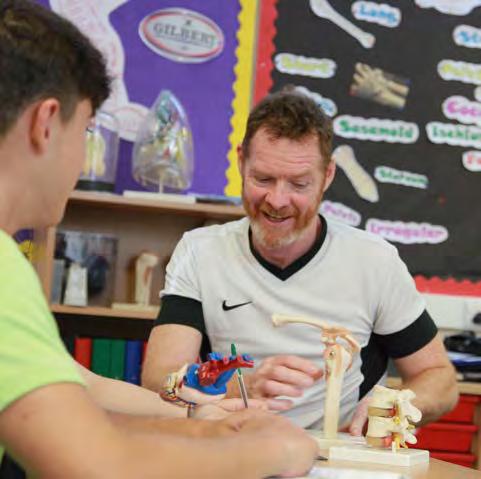
Assessment
Assessment is through a mixture of coursework, internally and externally set controlled assessments, and exams across the two years of study.
Skills you will develop
You will gain skills in fitness testing, training programme design, analysis of performance, and applied anatomy, as well as communication, teamwork, and leadership.
This BTEC supports progression to higher education courses in sport science, coaching, physiotherapy, and leisure management, as well as careers in fitness training, teaching, and the sports industry.
Exam Board: Edexcel
Additional Entry Requirements:
Grade 5 in Maths (higher paper.)
Overview:
Statistics focuses on the collection, analysis, and interpretation of data, helping you to understand patterns and make informed decisions. This course is ideal for students interested in applying mathematics to real-world contexts such as business, science, and social research.
What will you study?
You will study probability, hypothesis testing, regression, correlation, sampling, estimation, and data presentation. The course emphasises applying statistical methods to practical problems, with examples drawn from a wide range of fields including biology, economics, and psychology.
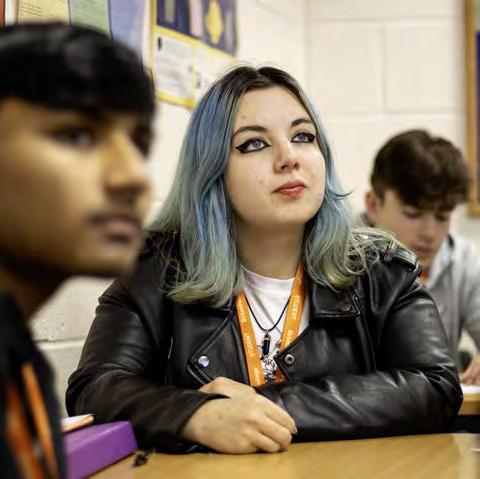
Assessment
Assessment is through written examinations at the end of Year 2, testing your ability to apply statistical techniques, interpret data, and evaluate conclusions.
Skills you will develop
You will develop quantitative reasoning, logical problem-solving, data handling, and critical analysis skills, alongside confidence in applying mathematics to real situations.
Statistics provides excellent preparation for university courses in economics, psychology, biology, geography, business, and social sciences, as well as careers in data analysis, research, finance, healthcare, and government.
Exam Board: AQA
Additional Entry Requirements:
Grade 4 in Art and Design or related Design Technology subject
Overview:
Textiles A Level combines the development of creativity with technical skill, encouraging you to design and produce innovative textile outcomes. This course allows you to explore materials, processes, and concepts while developing a personal and imaginative approach to textile design.
What will you study?
You will experiment with a wide range of techniques such as printing, dyeing, embroidery, construction, and digital applications. The course encourages you to investigate contemporary and historical textile designers, while creating your own portfolio of work that reflects personal interests and creative expression.
Assessment
Assessment is 60% coursework and 40% exam project, with both practical and written elements.
Skills you will develop
You will gain creative and technical design skills, research and analysis, problem-solving, project management, and the ability to communicate visually through textiles.
Future Pathways
Our students have progressed on to a range of higher education courses that include fashion – design, communication and buying, knitwear and textile design, costume and theatre design, interior design and craft, and then pursued careers in those areas as well as the wider creative industries.
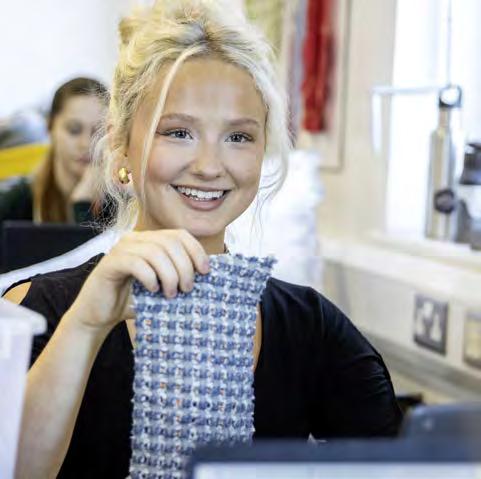
Overview:
The High Performers Programme is a bespoke support scheme for ambitious students aspiring to progress to the UK’s top universities and most competitive careers. It is designed for students with an average GCSE score of 7 or above who are aiming for Oxford or Cambridge, Russell Group universities, or highly selective degrees such as Medicine, Dentistry, or Veterinary Science.
An ambitious and tailored support programme designed to help academically able students realise their full potential and successfully progress to the most competitive university and degree pathways.
Pathway Includes:
•Oxbridge
•Medicine, Dentistry & Veterinary Science
•STEM subjects
•Russell Group universities
•Arts
•Degree Apprenticeships
Students will build advanced research and critical thinking skills, independence, resilience, and the ability to articulate ideas with confidence.
The programme also develops cultural awareness, intellectual curiosity, and the academic depth needed for competitive applications.
Extended Project Qualification:
Alongside their chosen pathway, all students will complete an Extended Project Qualifaction (EPQ) - an independent research project highly valued by top universities.
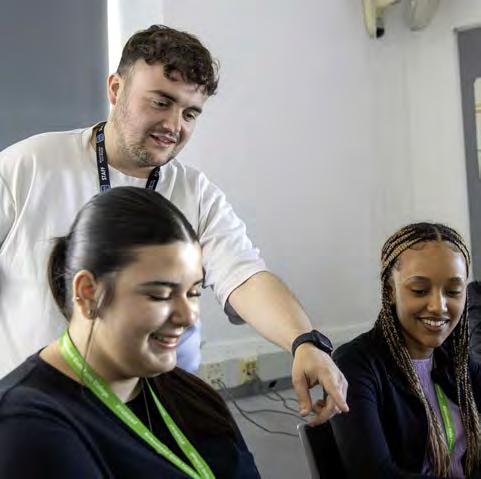
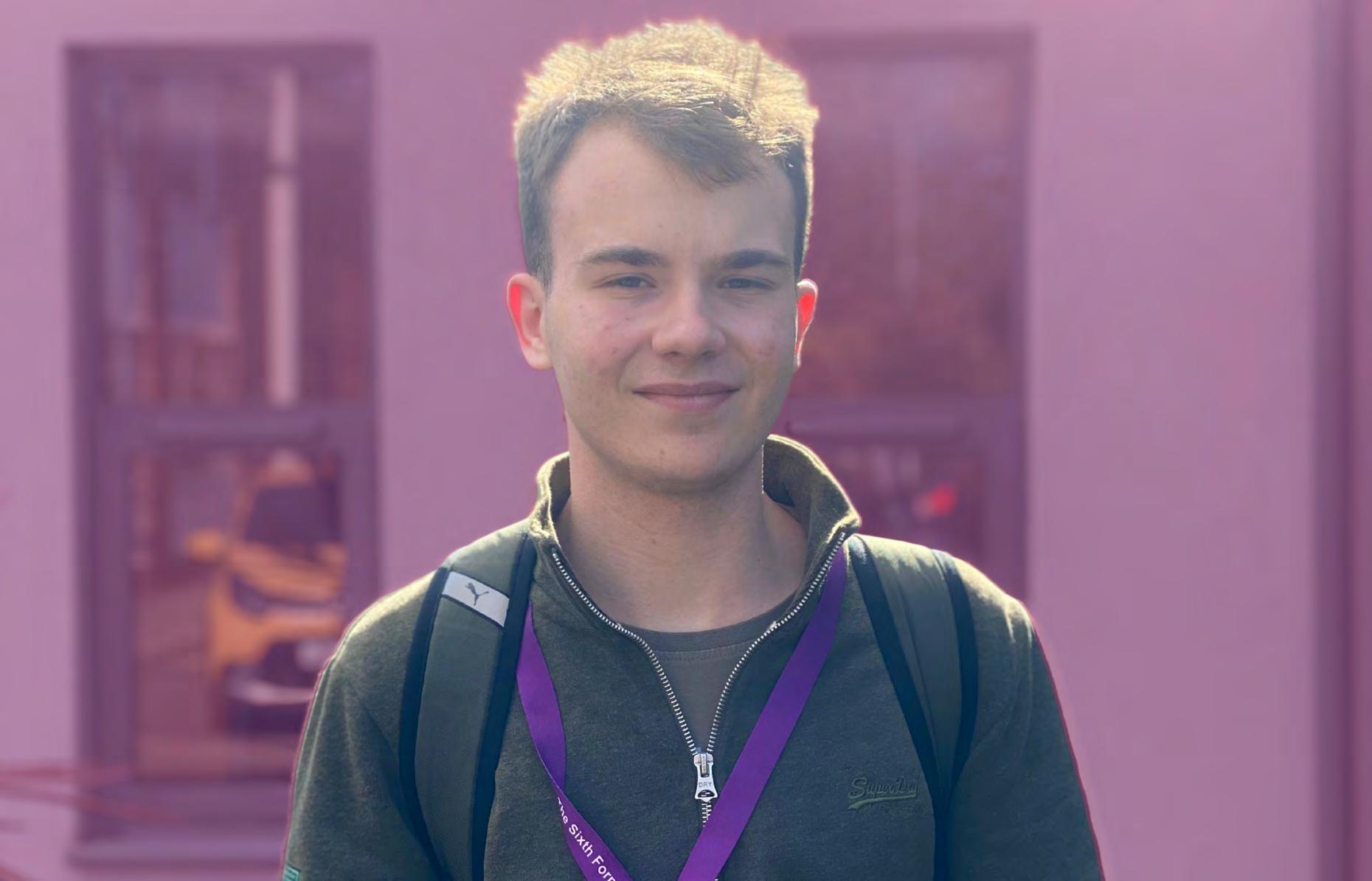
“The support provided by BSFC throughout my application to Cambridge was second to none. I really valued the guidance from my tutor and teachers, without whose advice I wouldn’t be where I am today. I cannot praise the College enough for enabling me to achieve my full potential.”
Sam - History at University of Cambridge


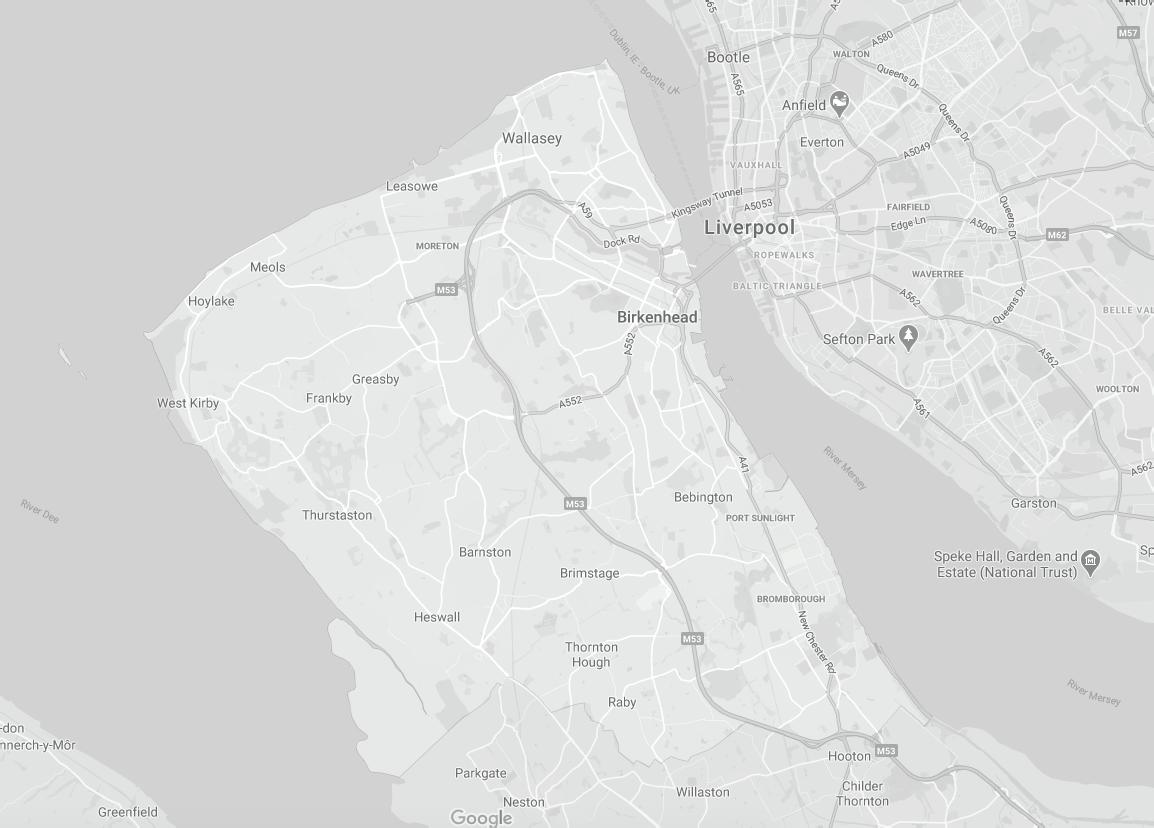


We are committed to ensuring that all students have access to the right resources to be successful in their academic studies and remove any barriers to participation.
For eligible students, financial support is available to help cover:
Travel to and from College (if you live more than a mile away from the campus)
College meals
Compulsory College trips
Selected learning materials
For full details, visit - www.bsfc.ac.uk/college-information/bursary-scheme

